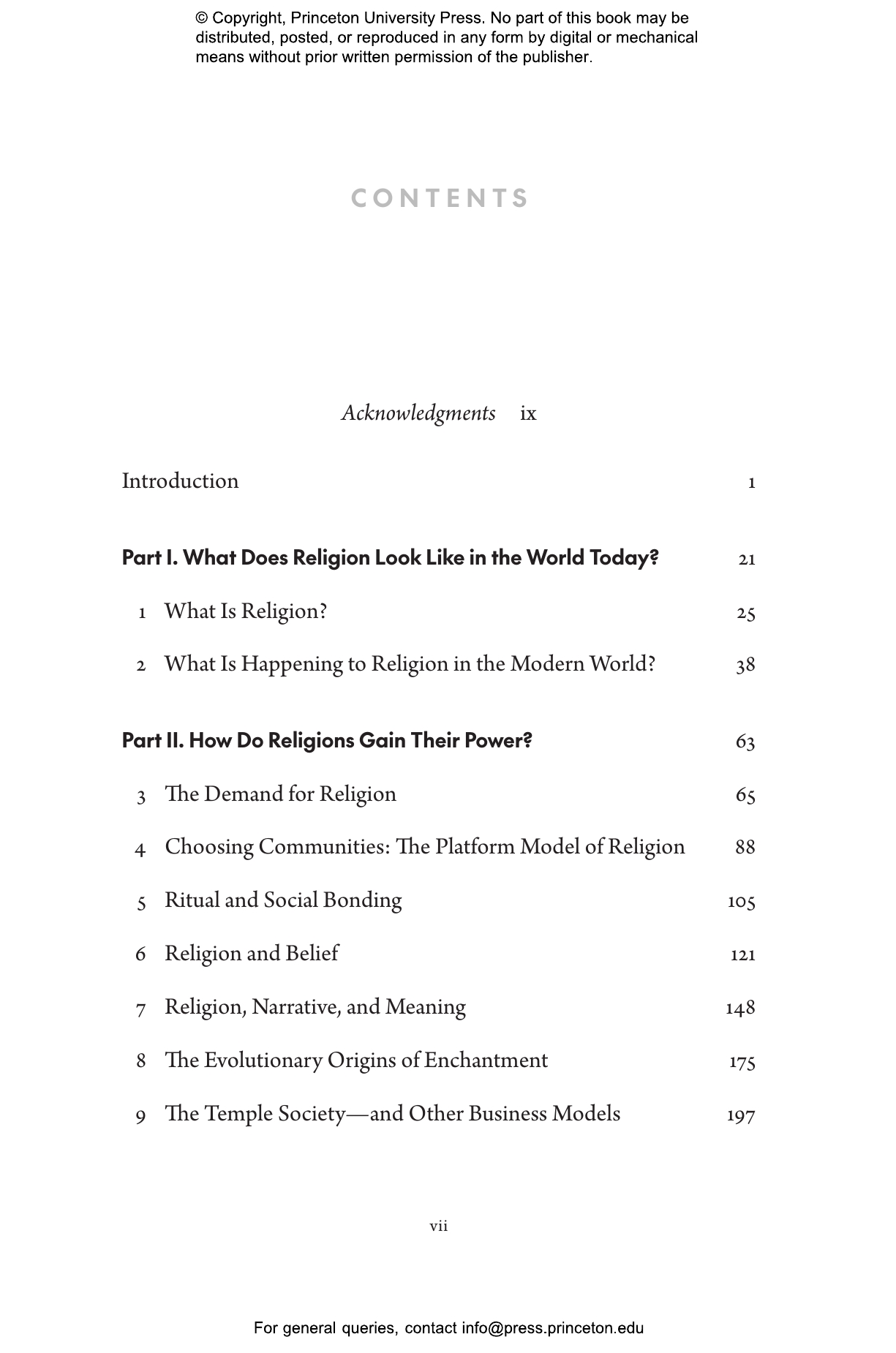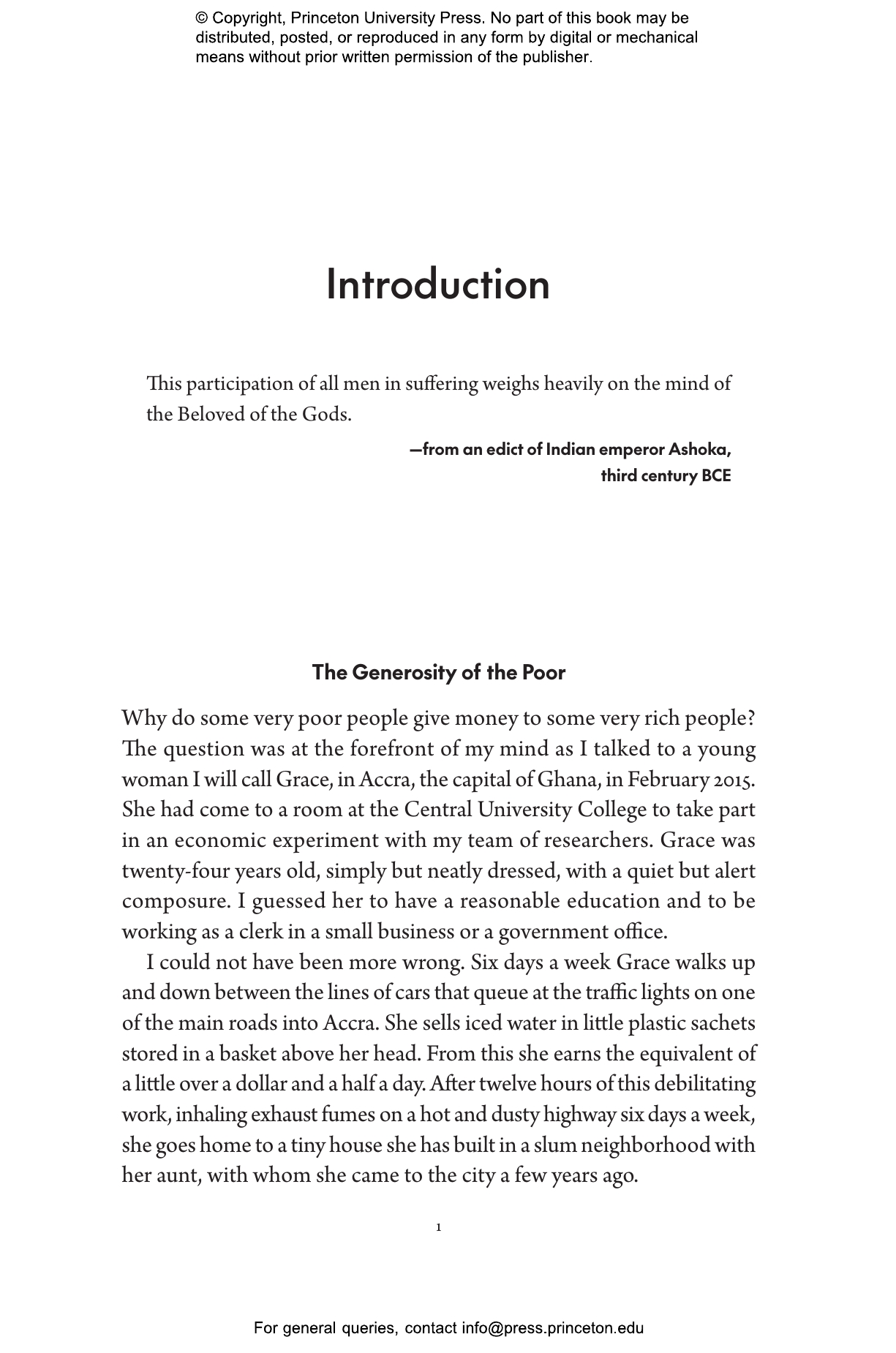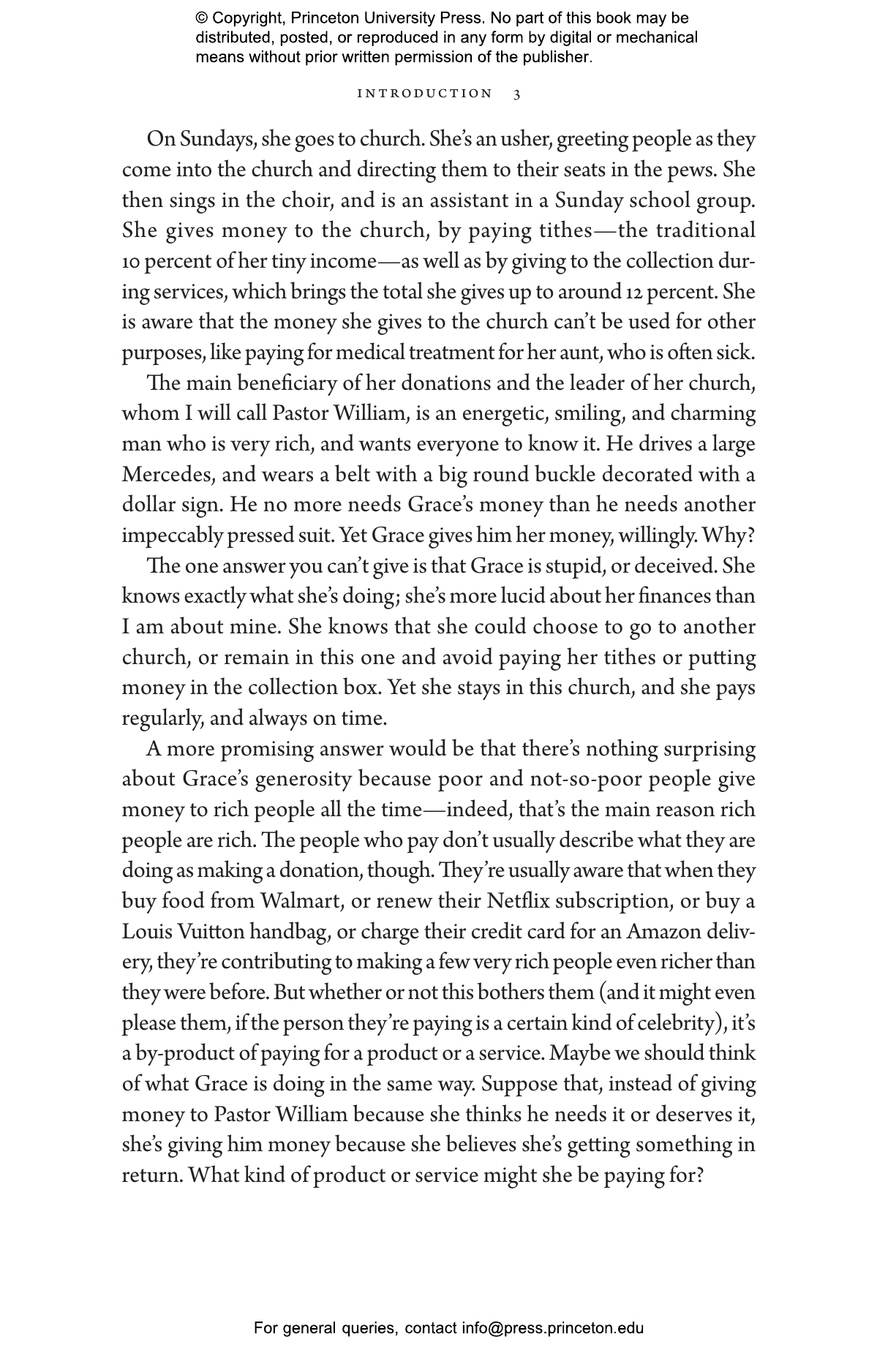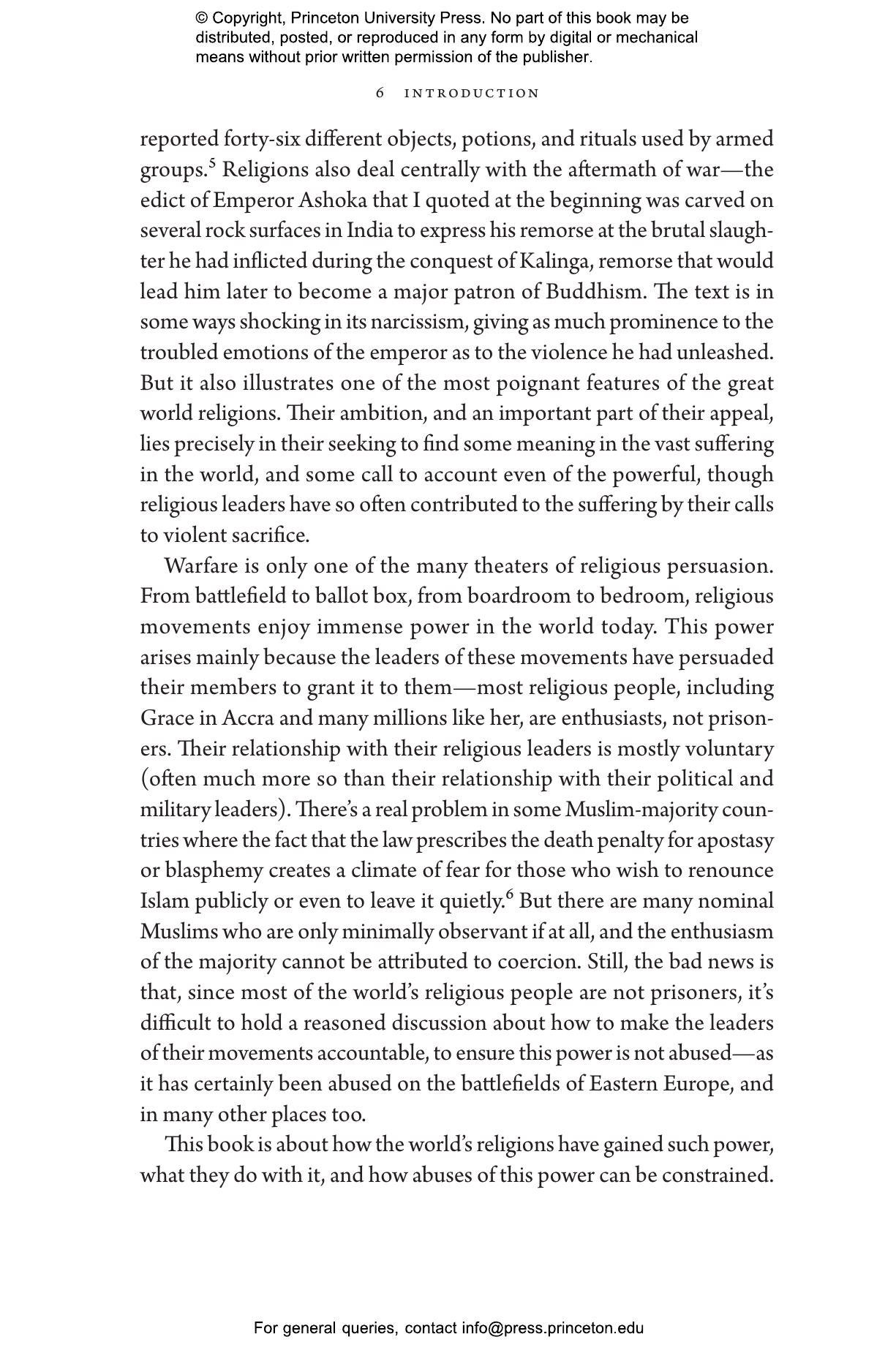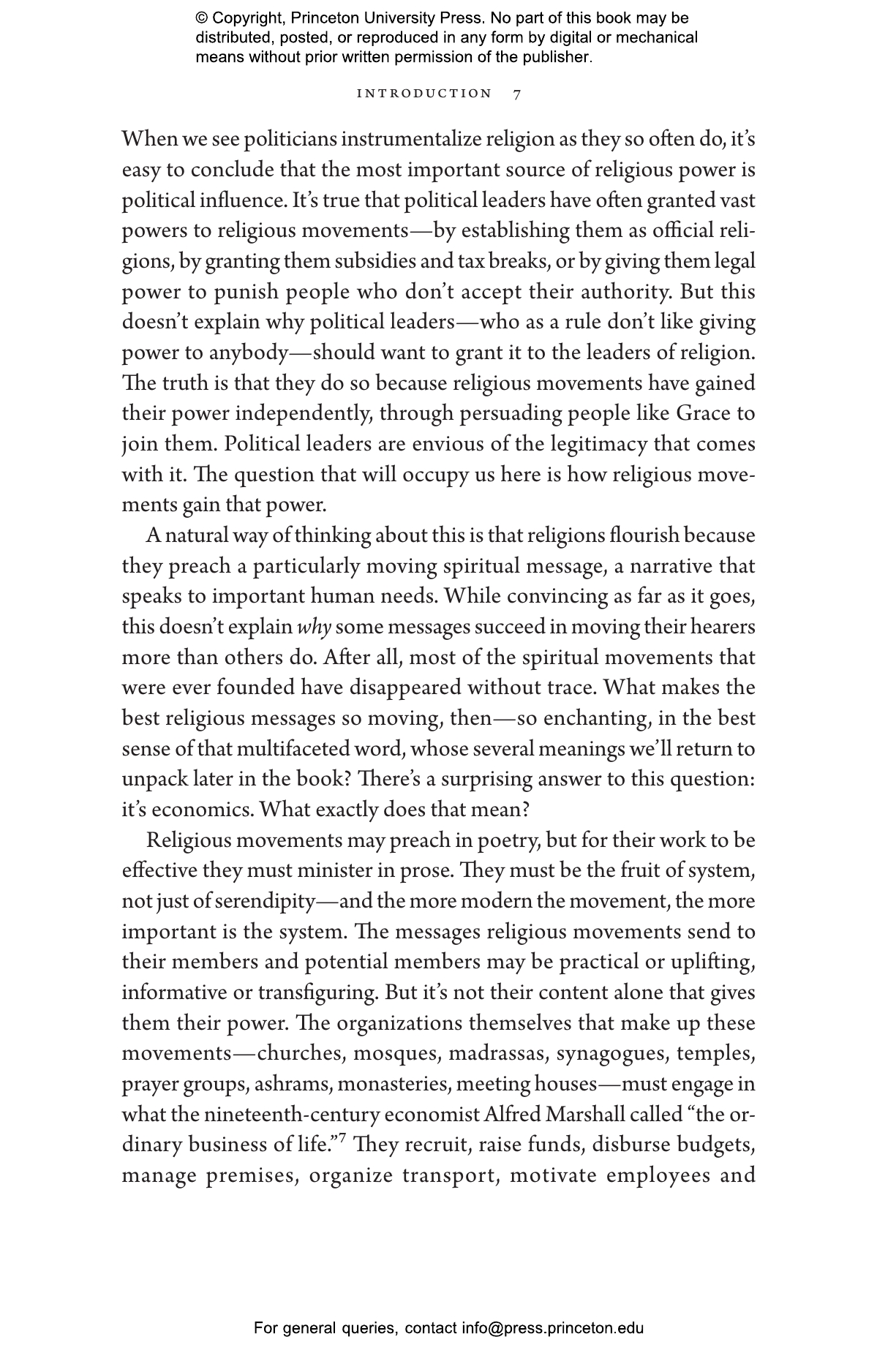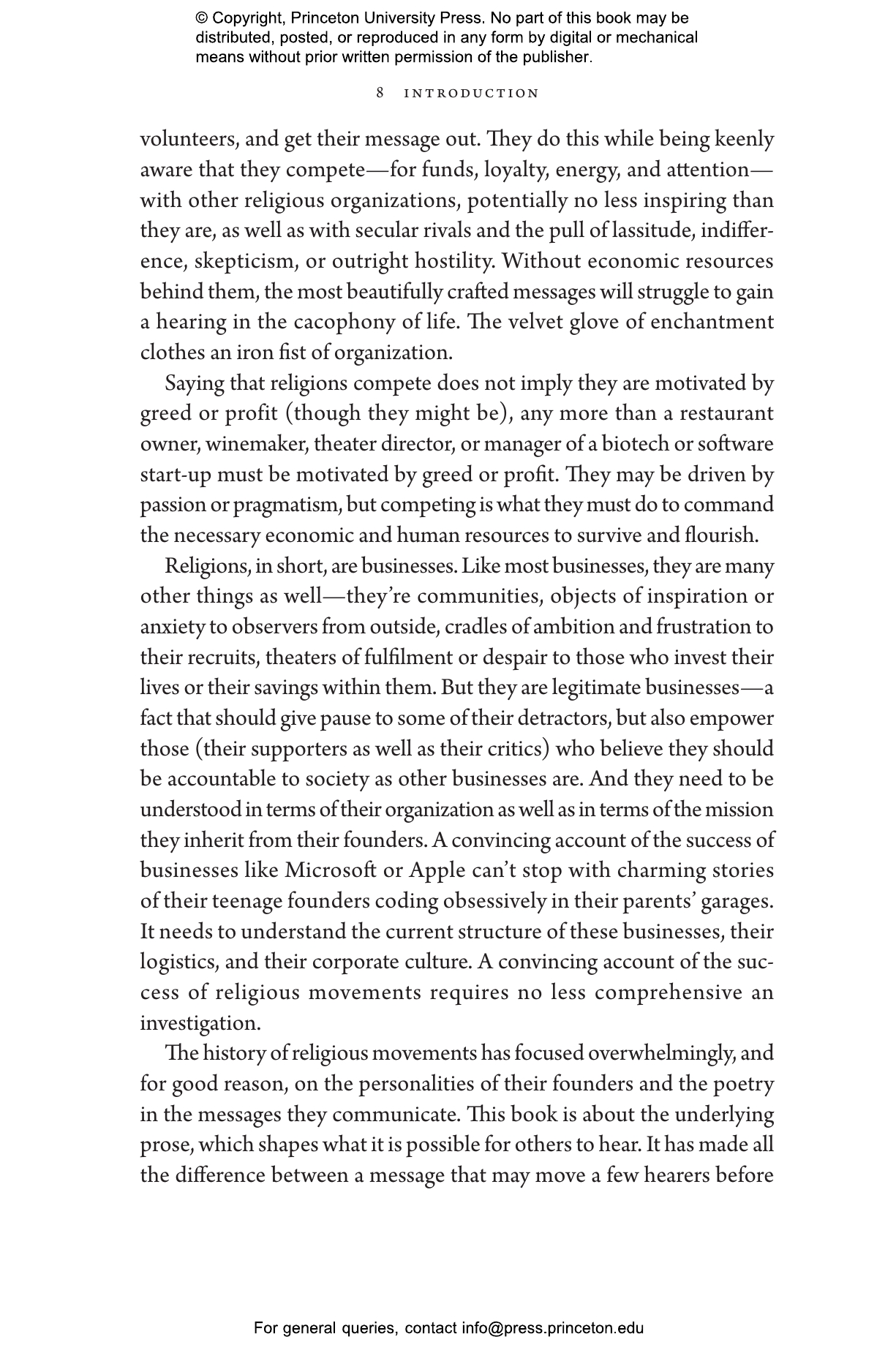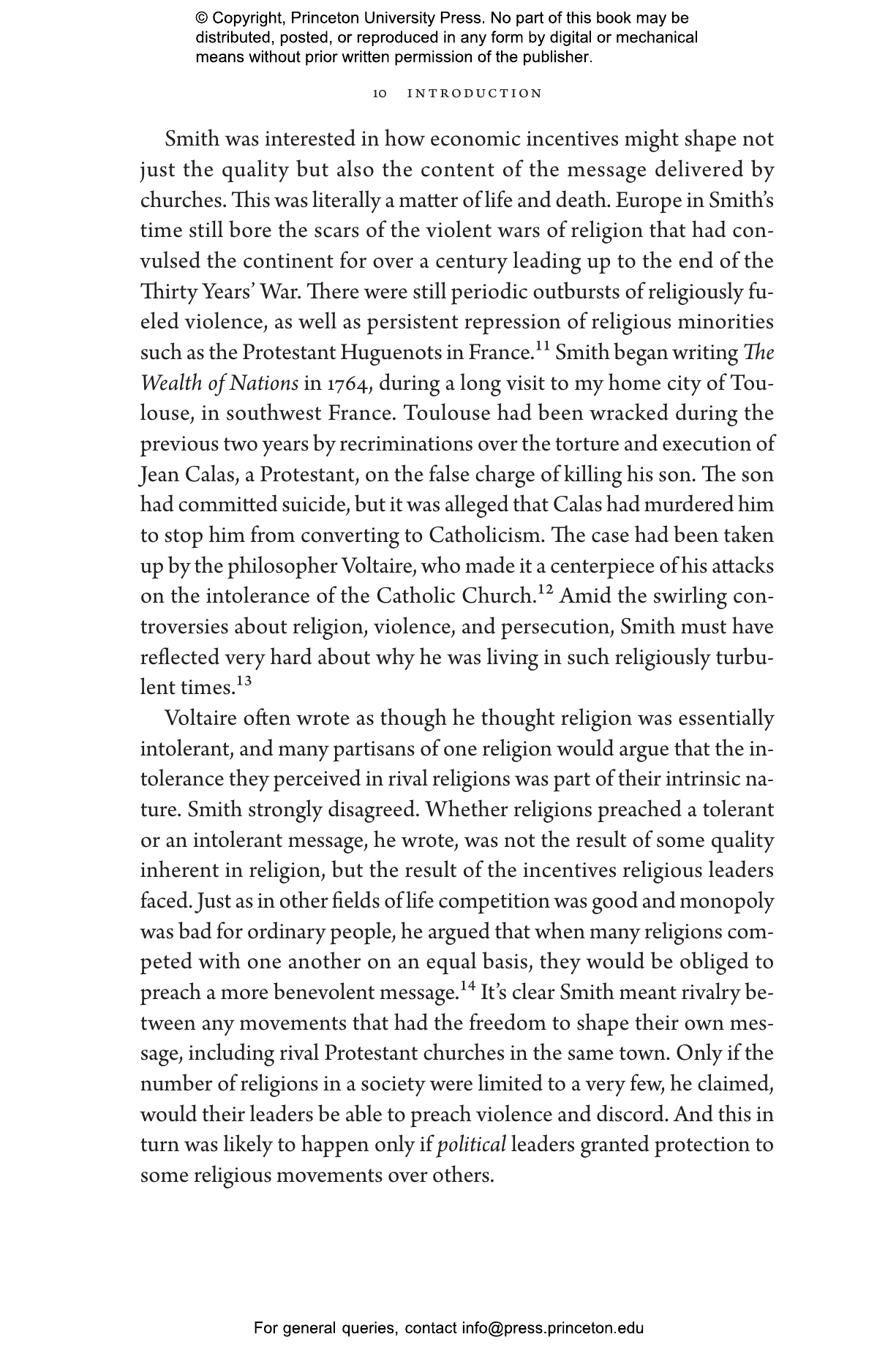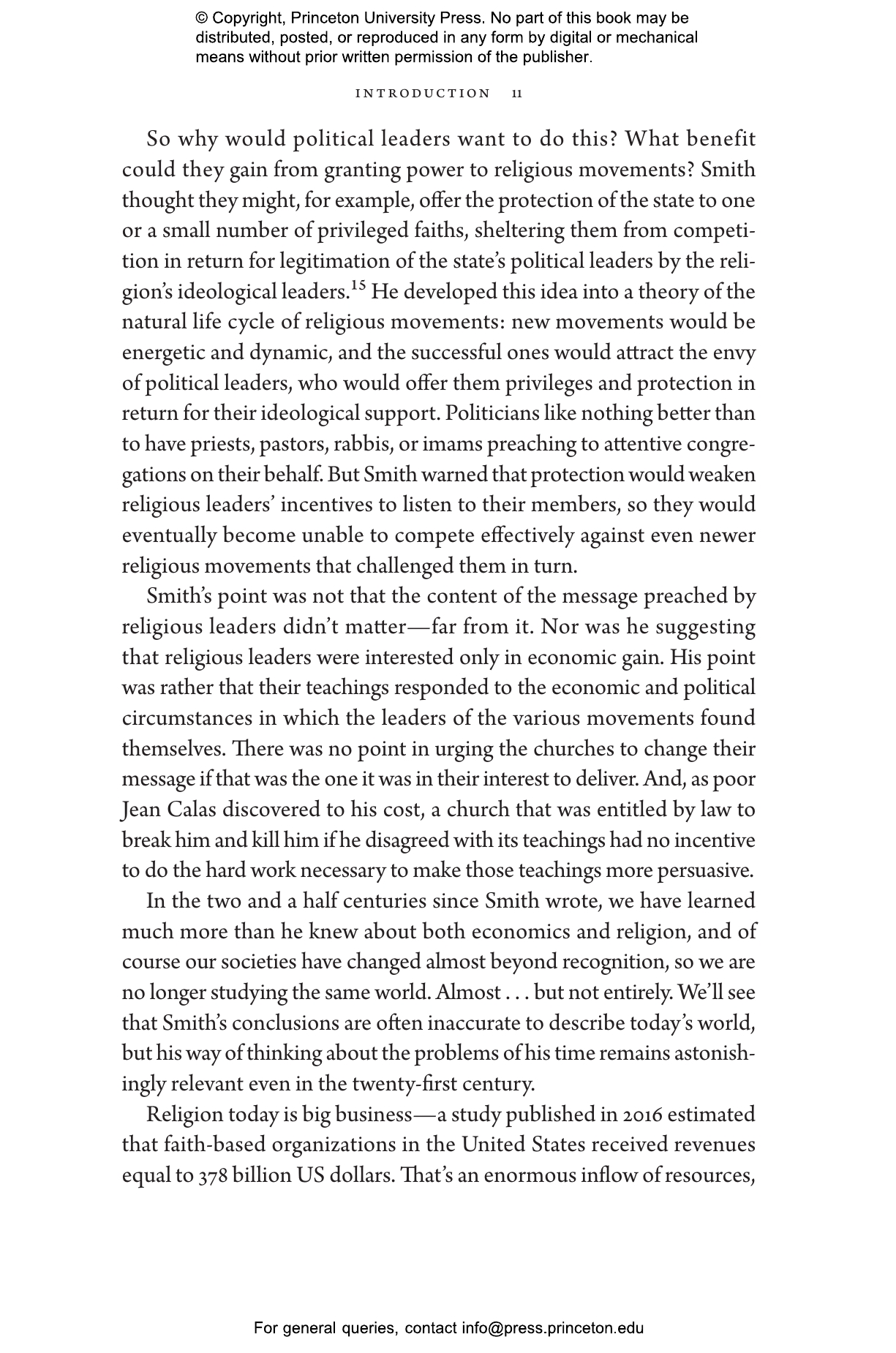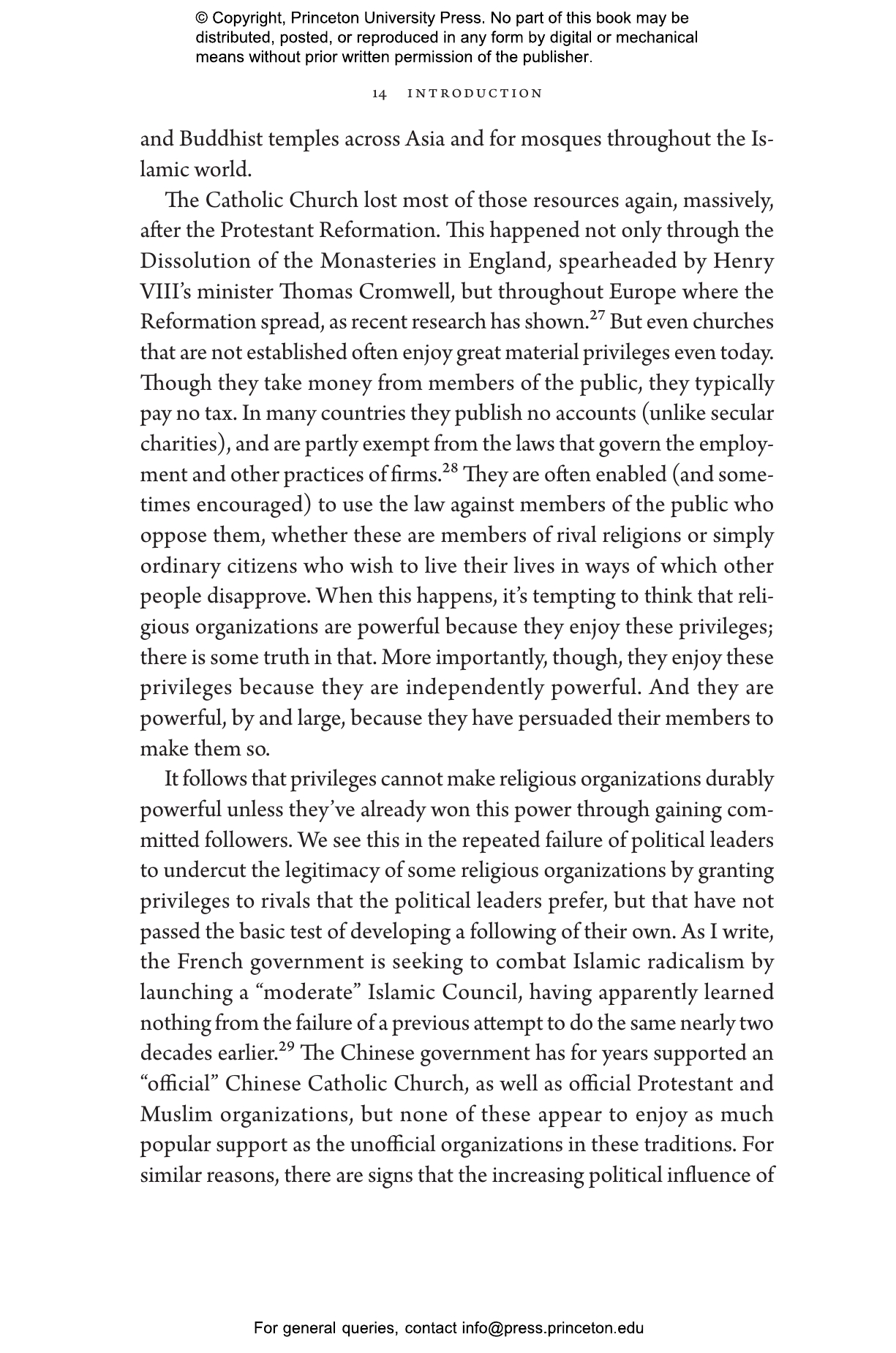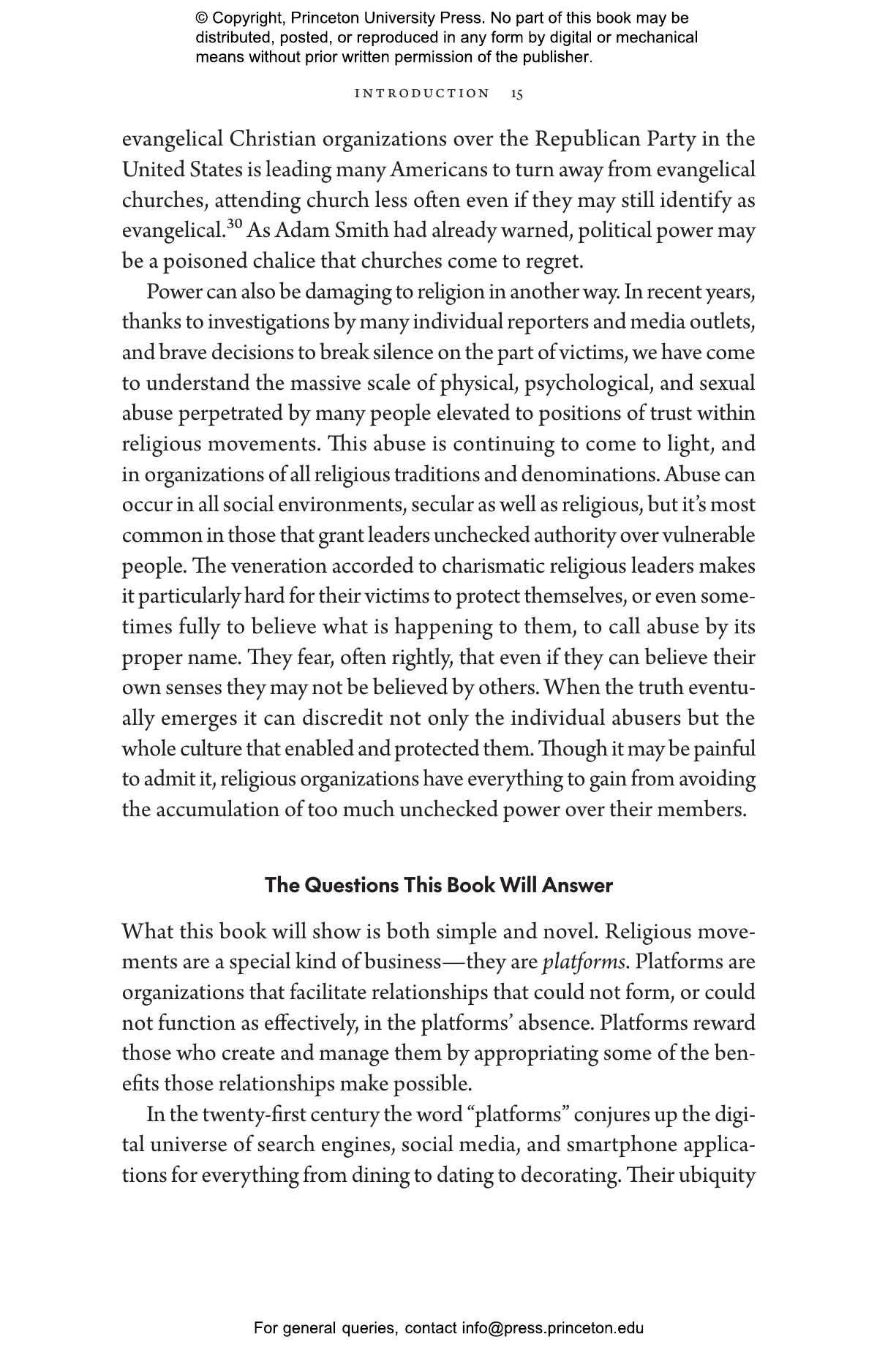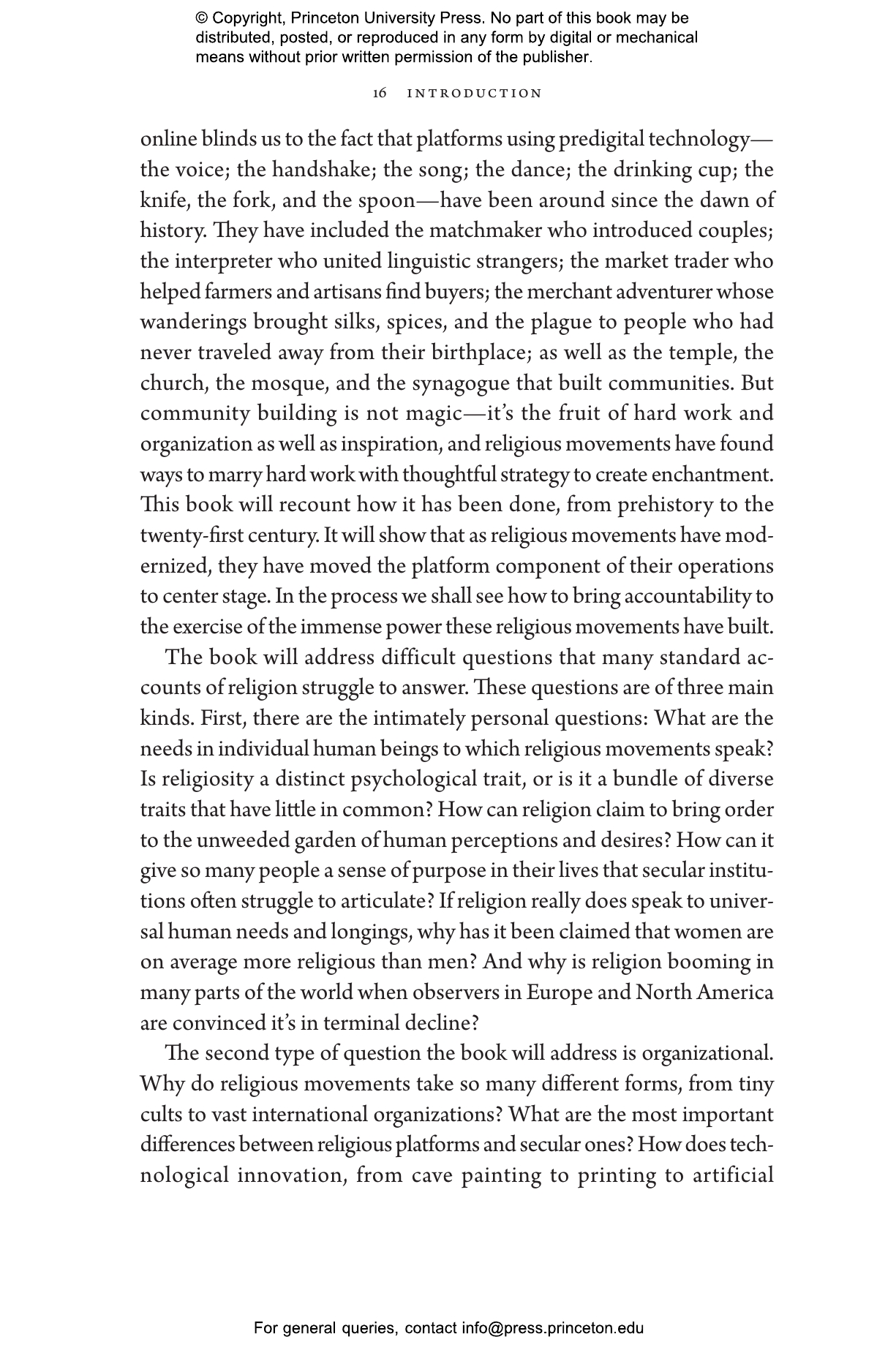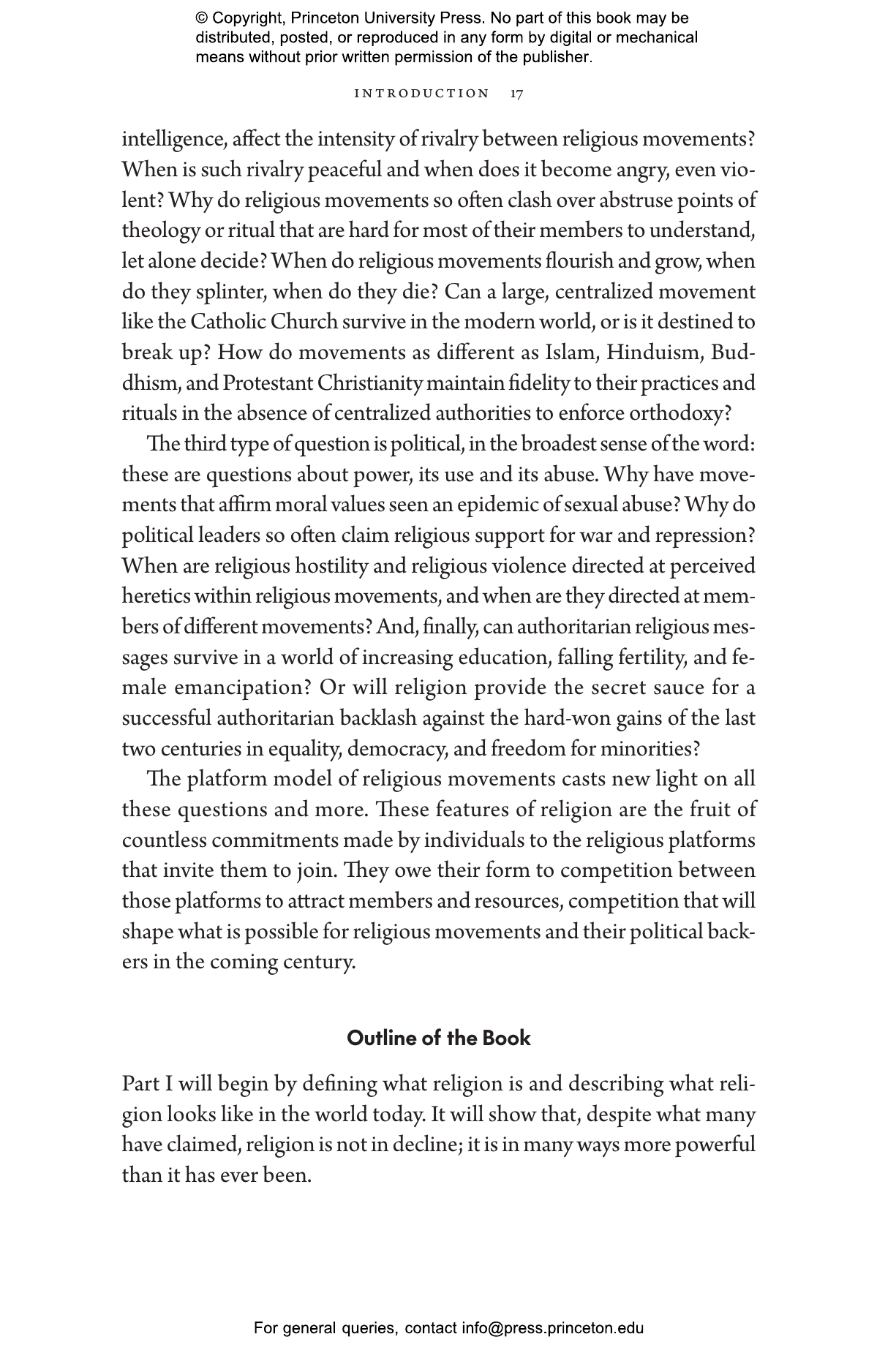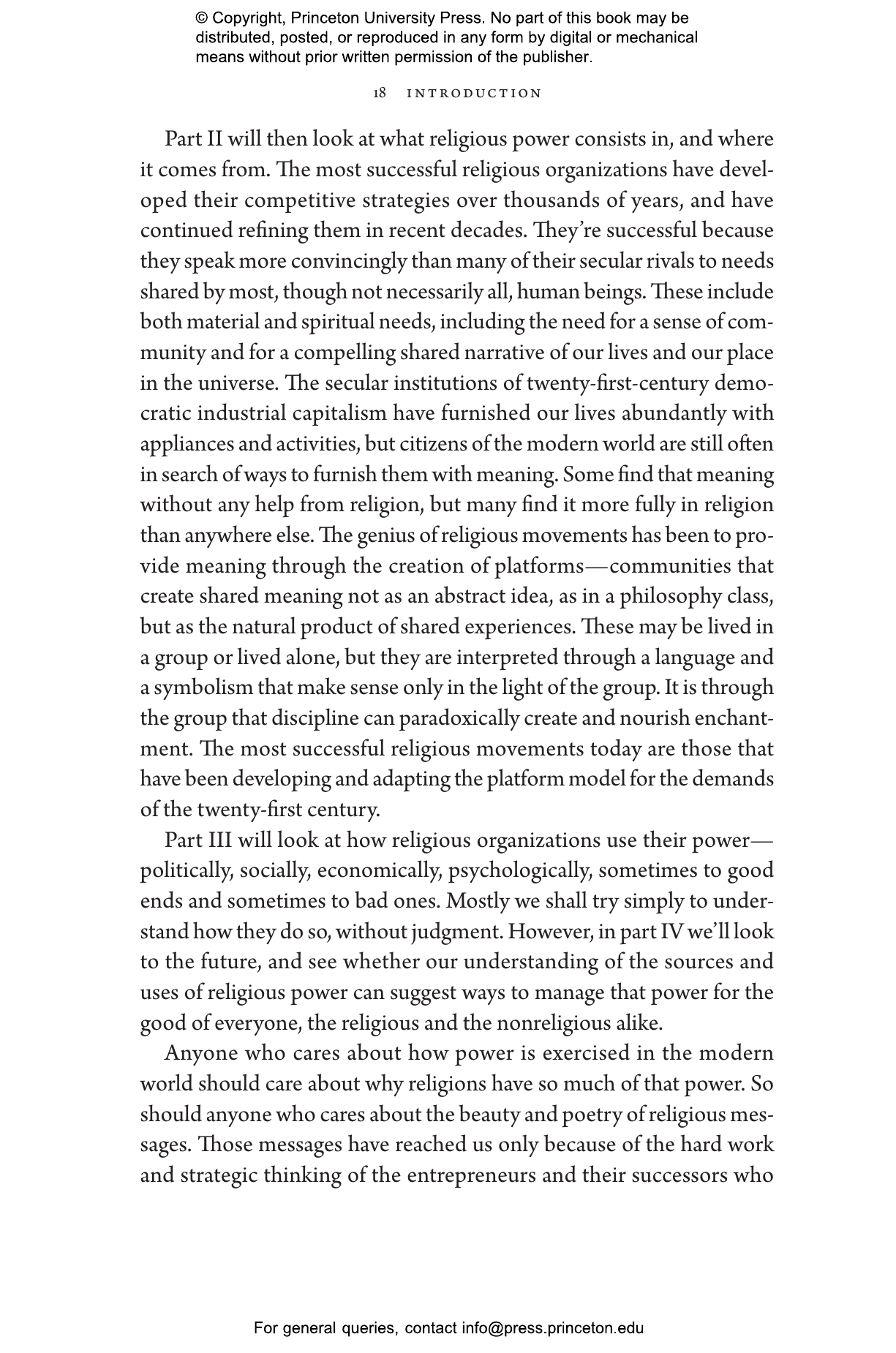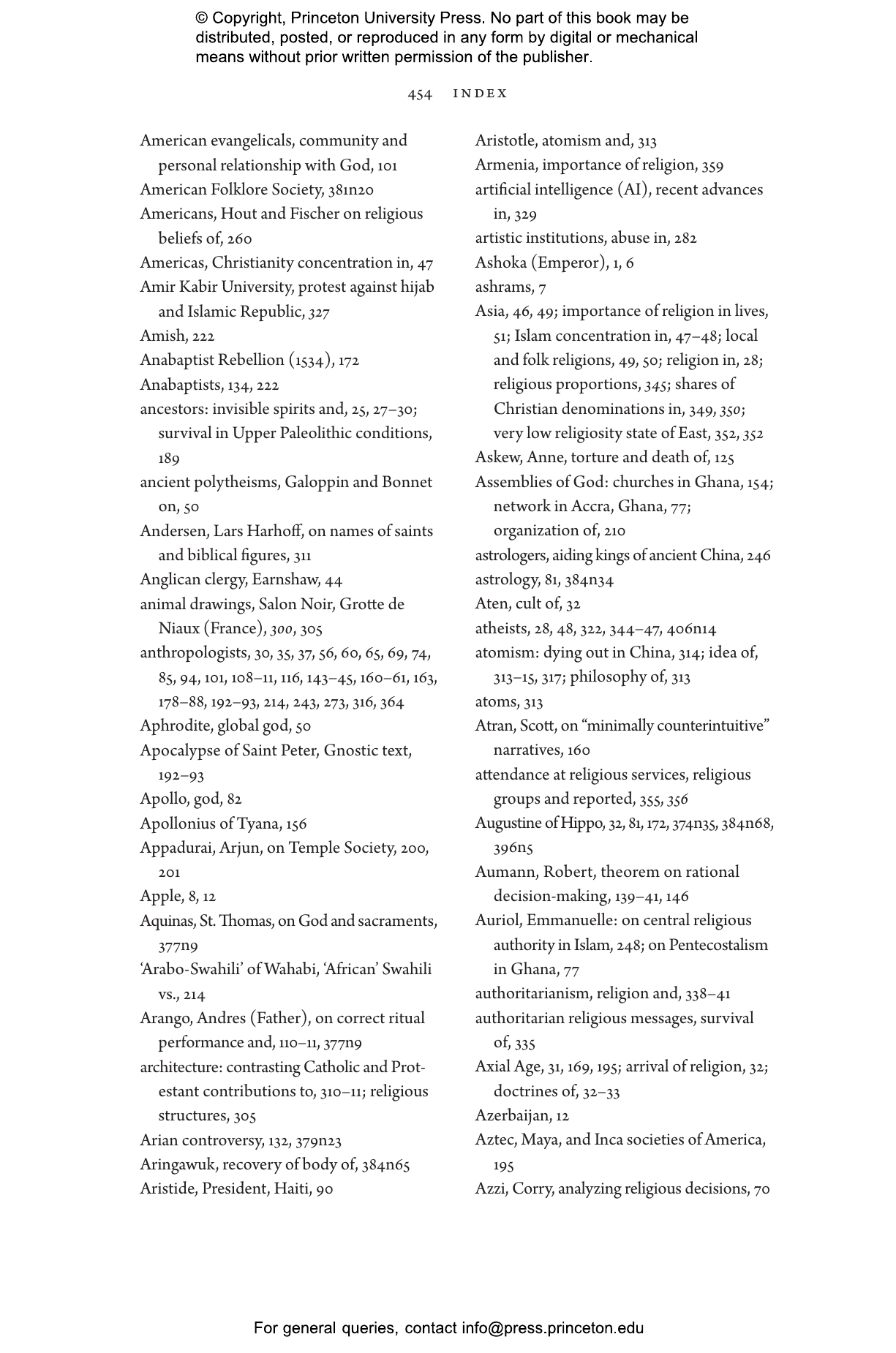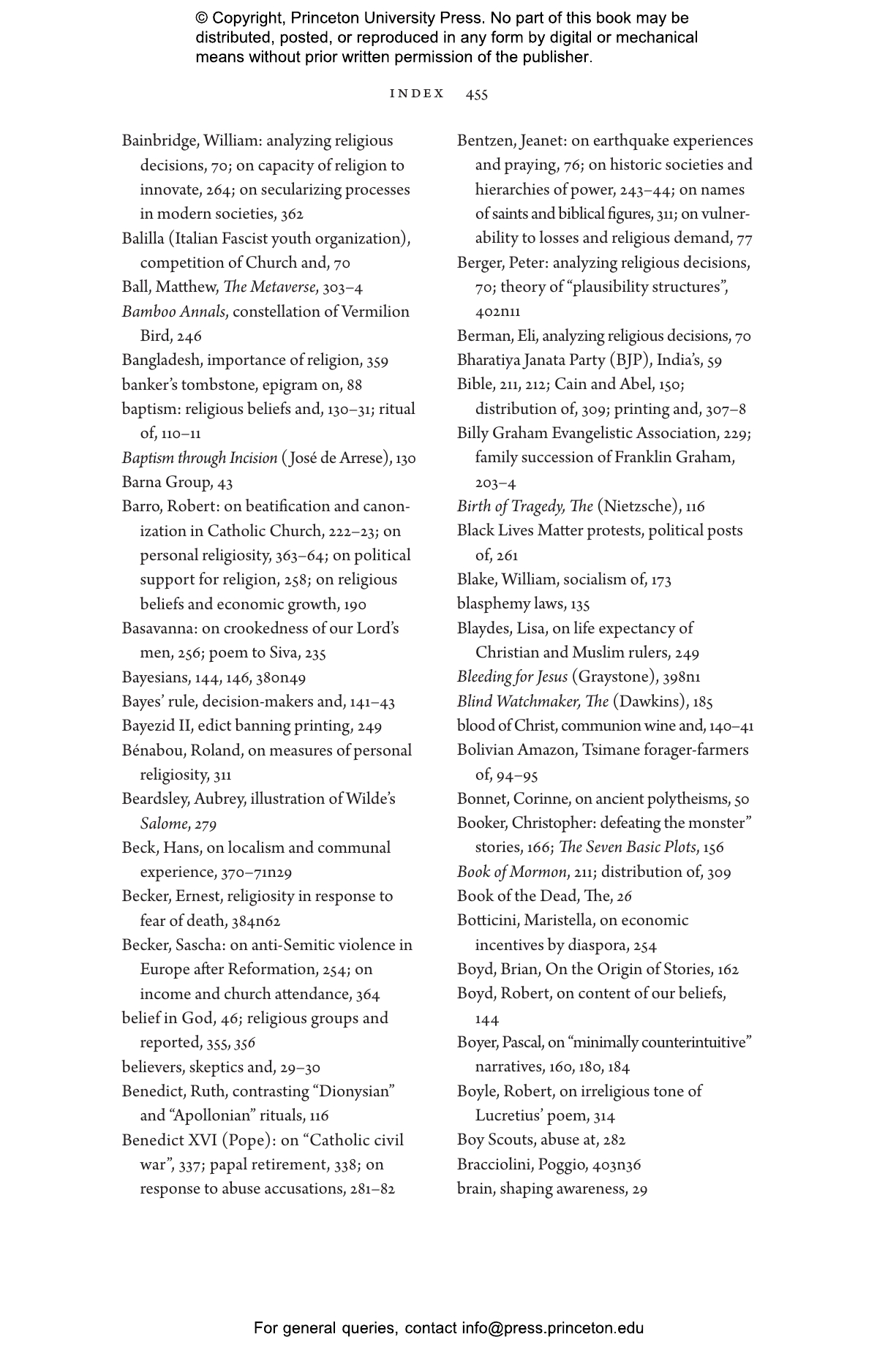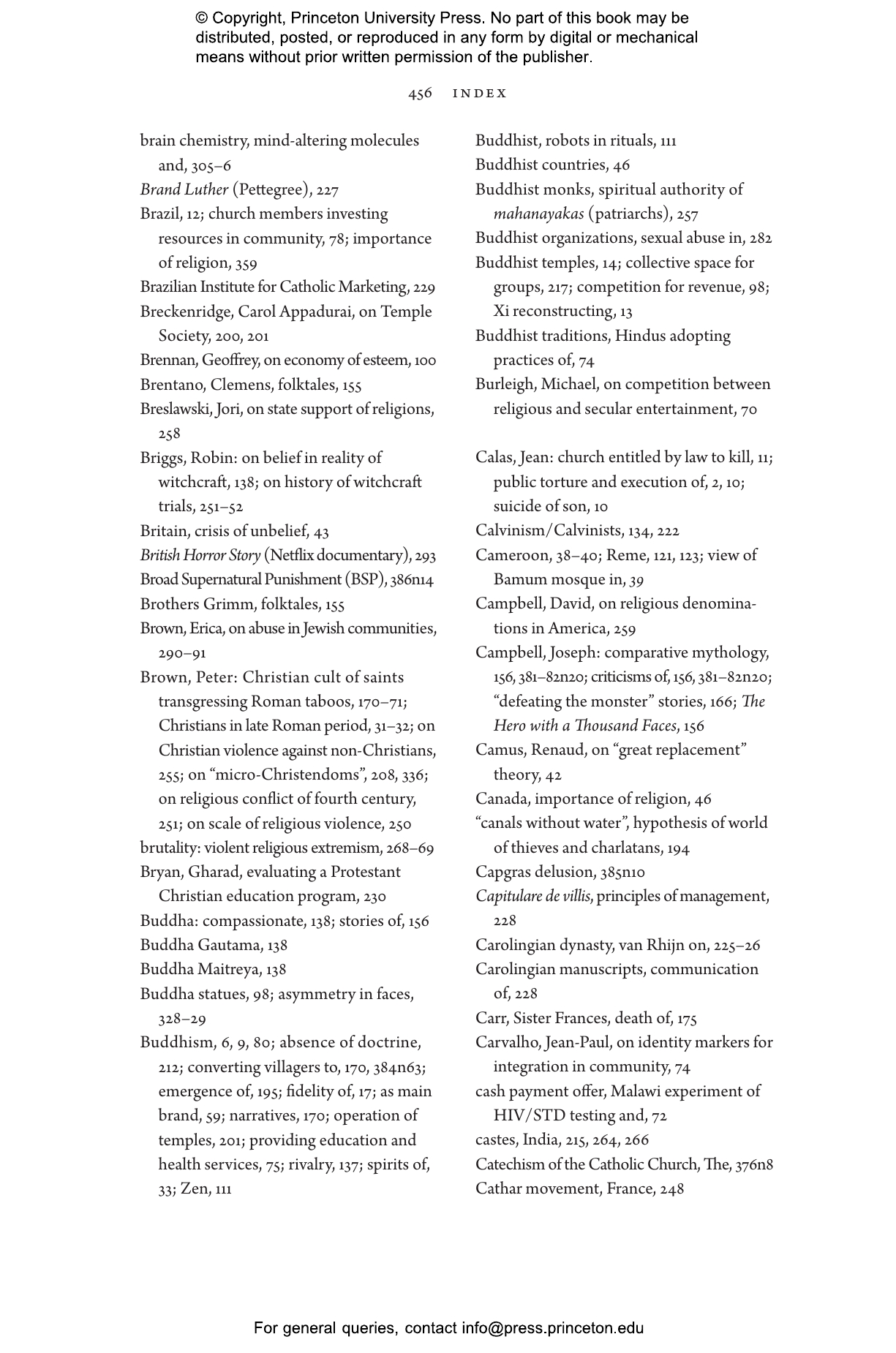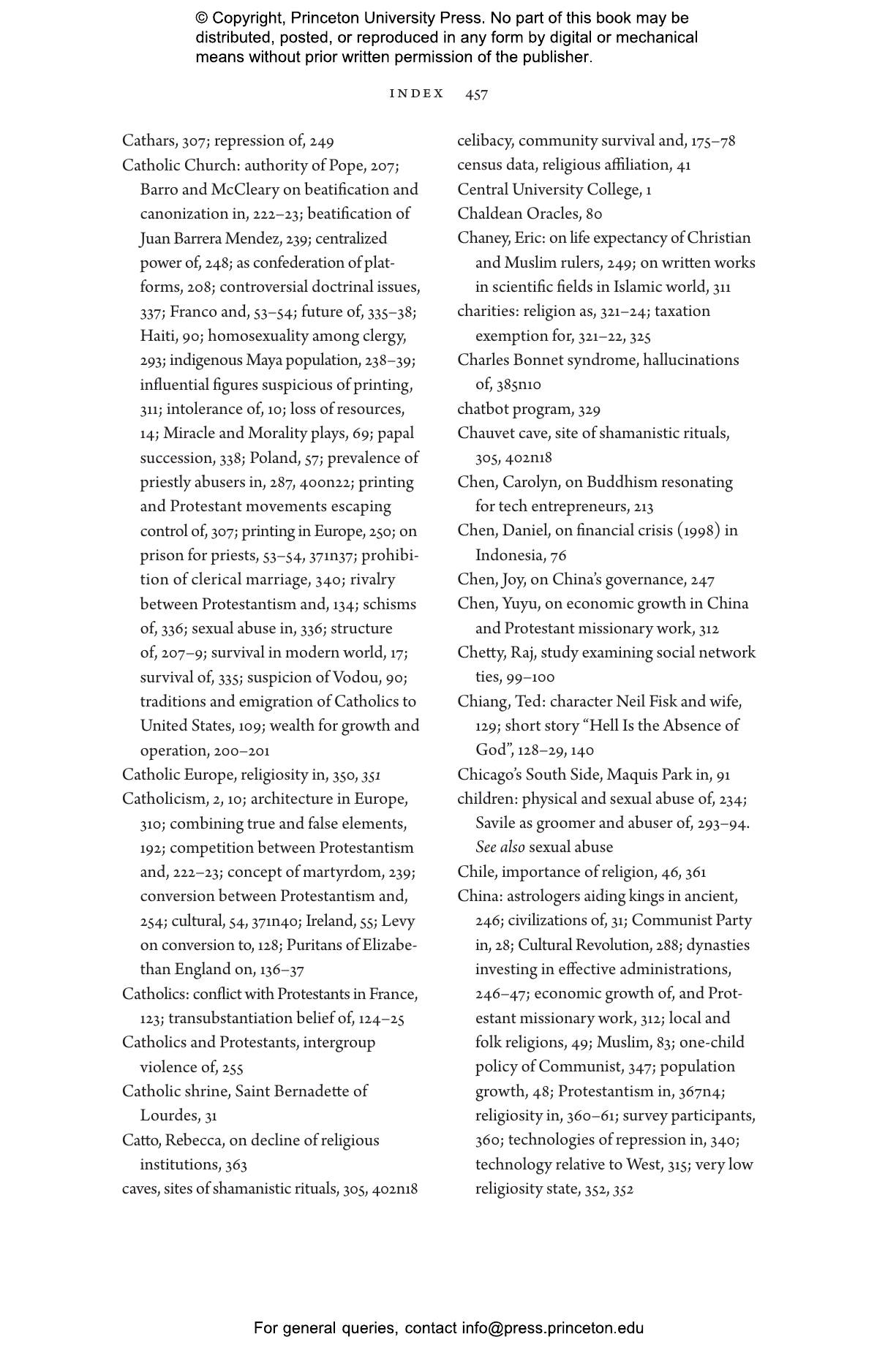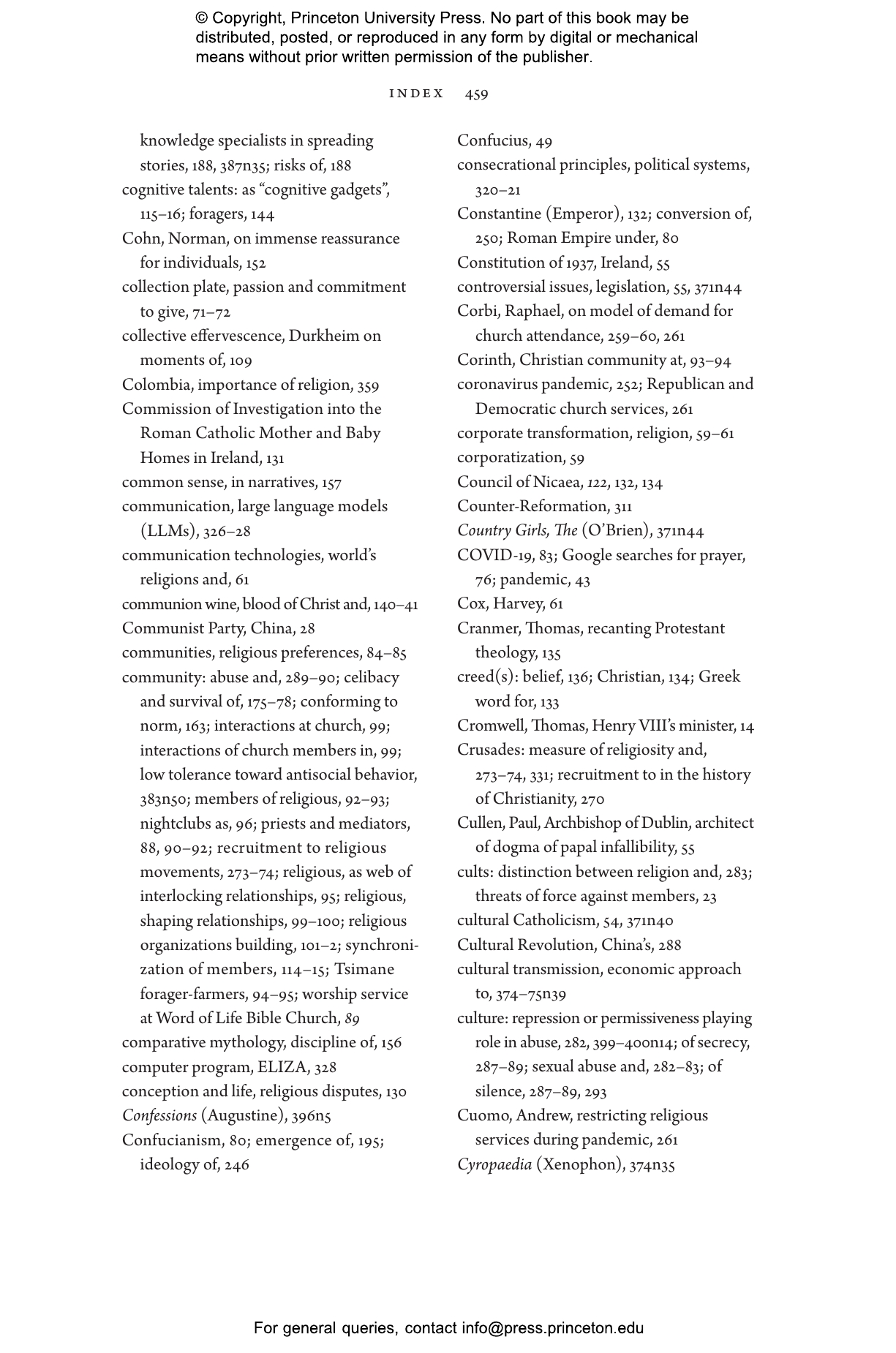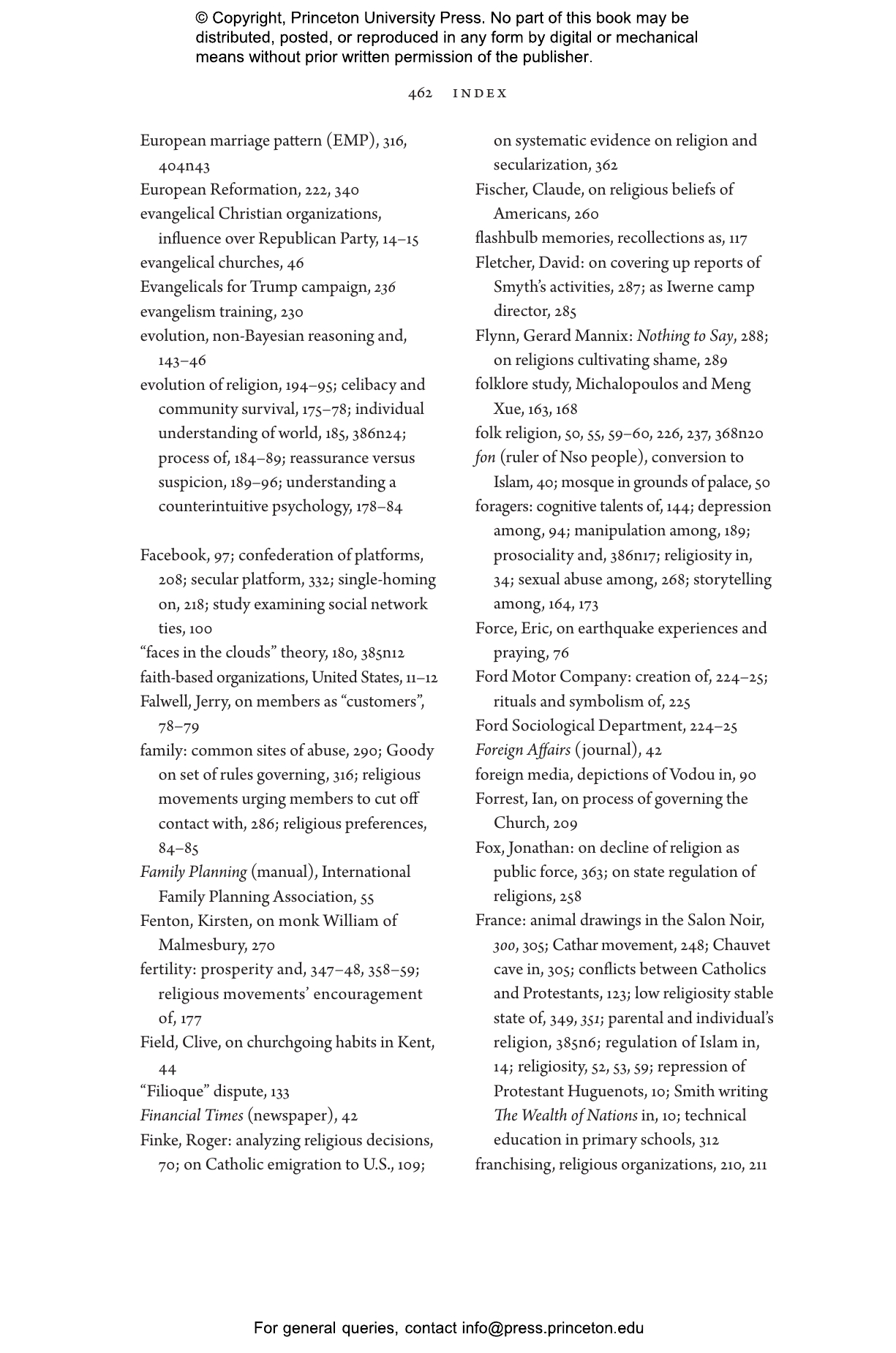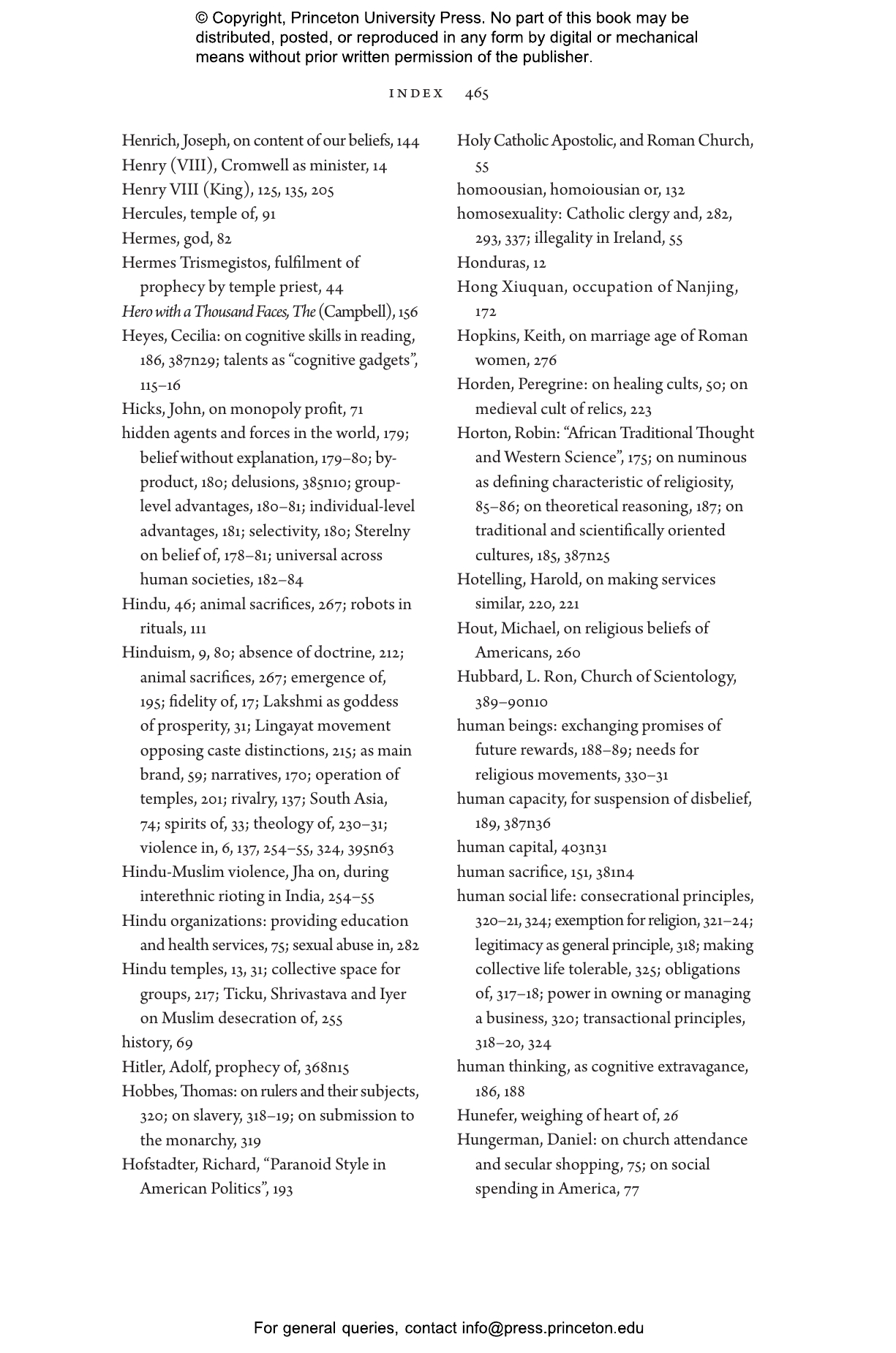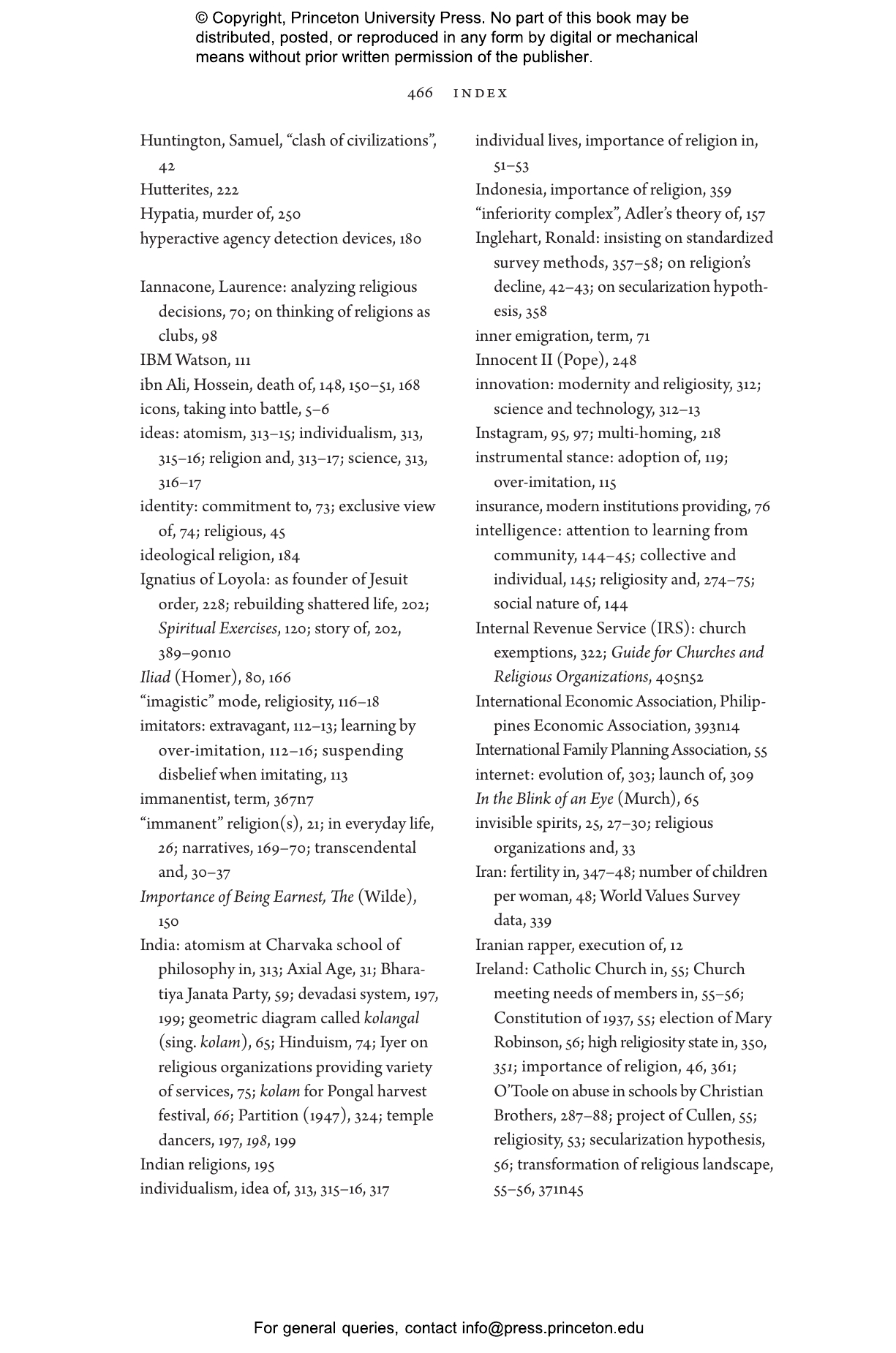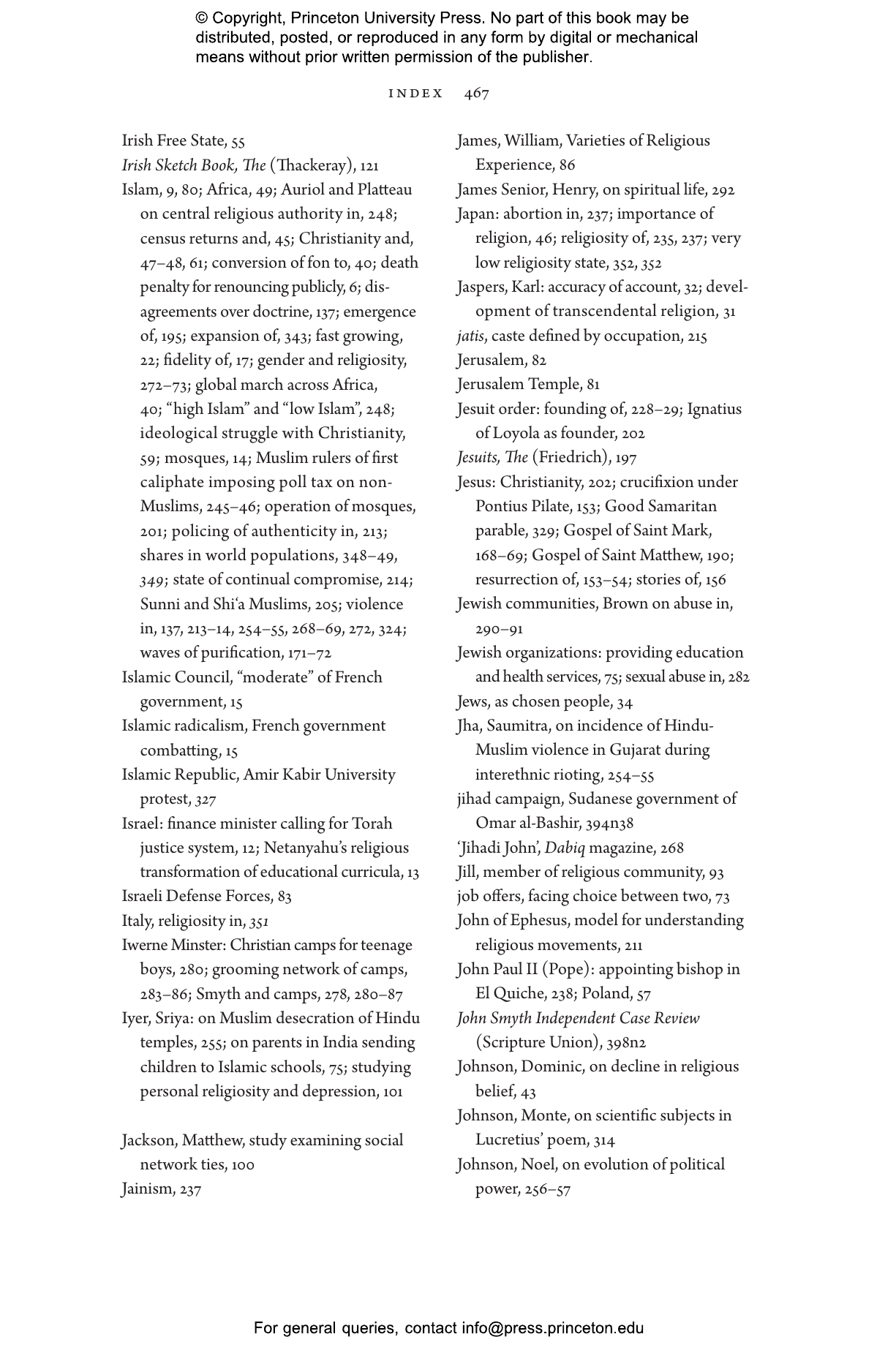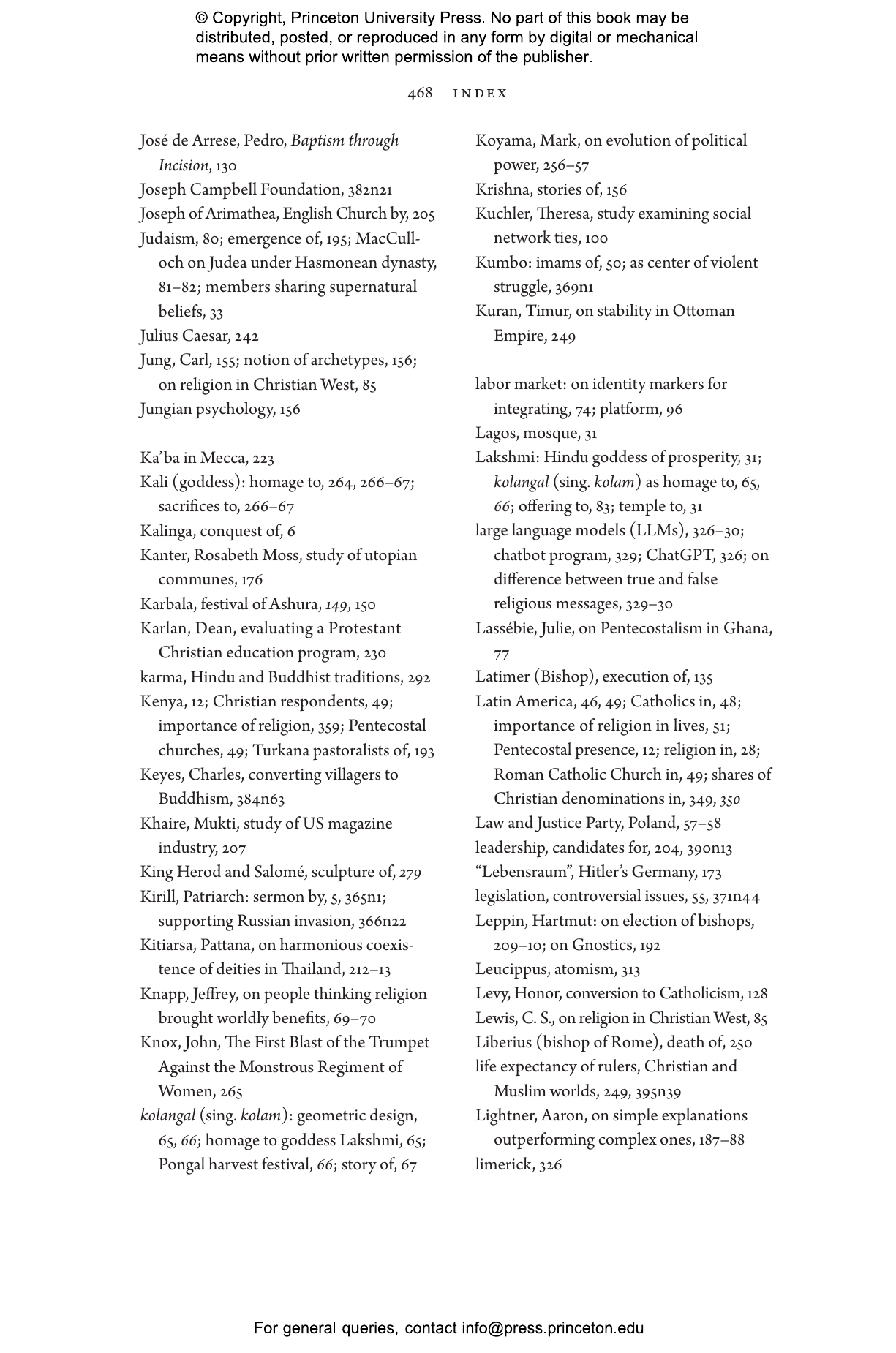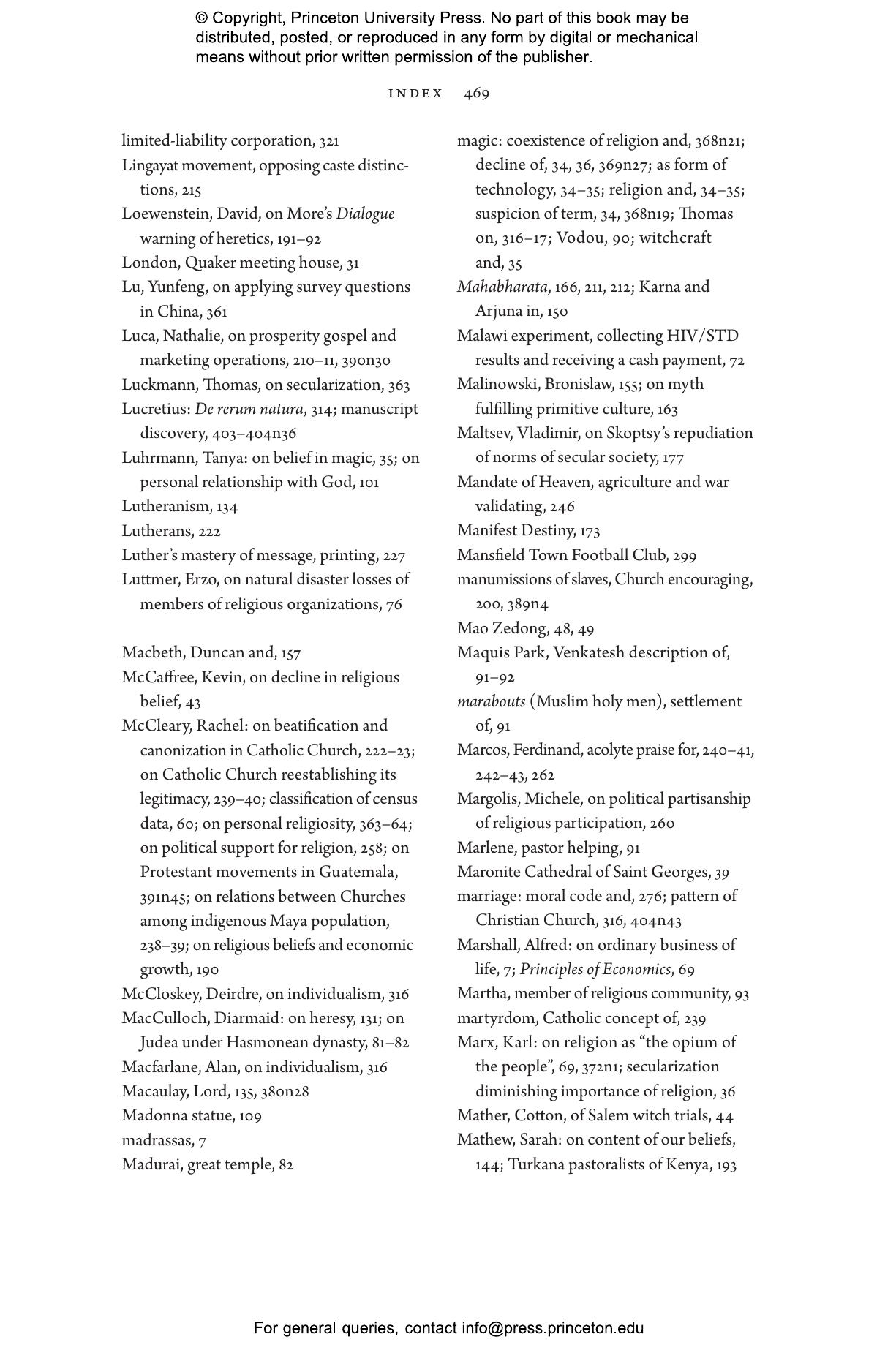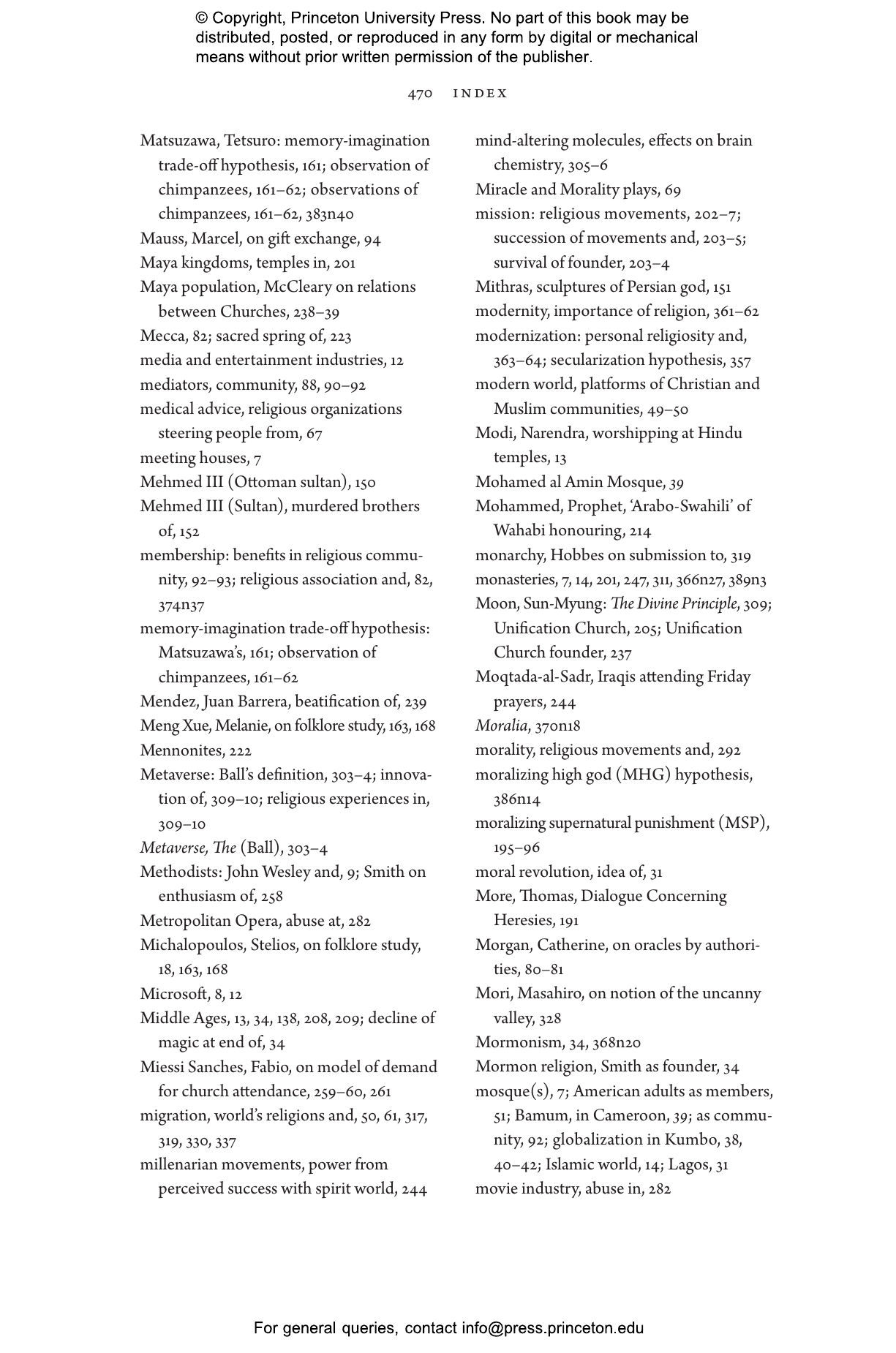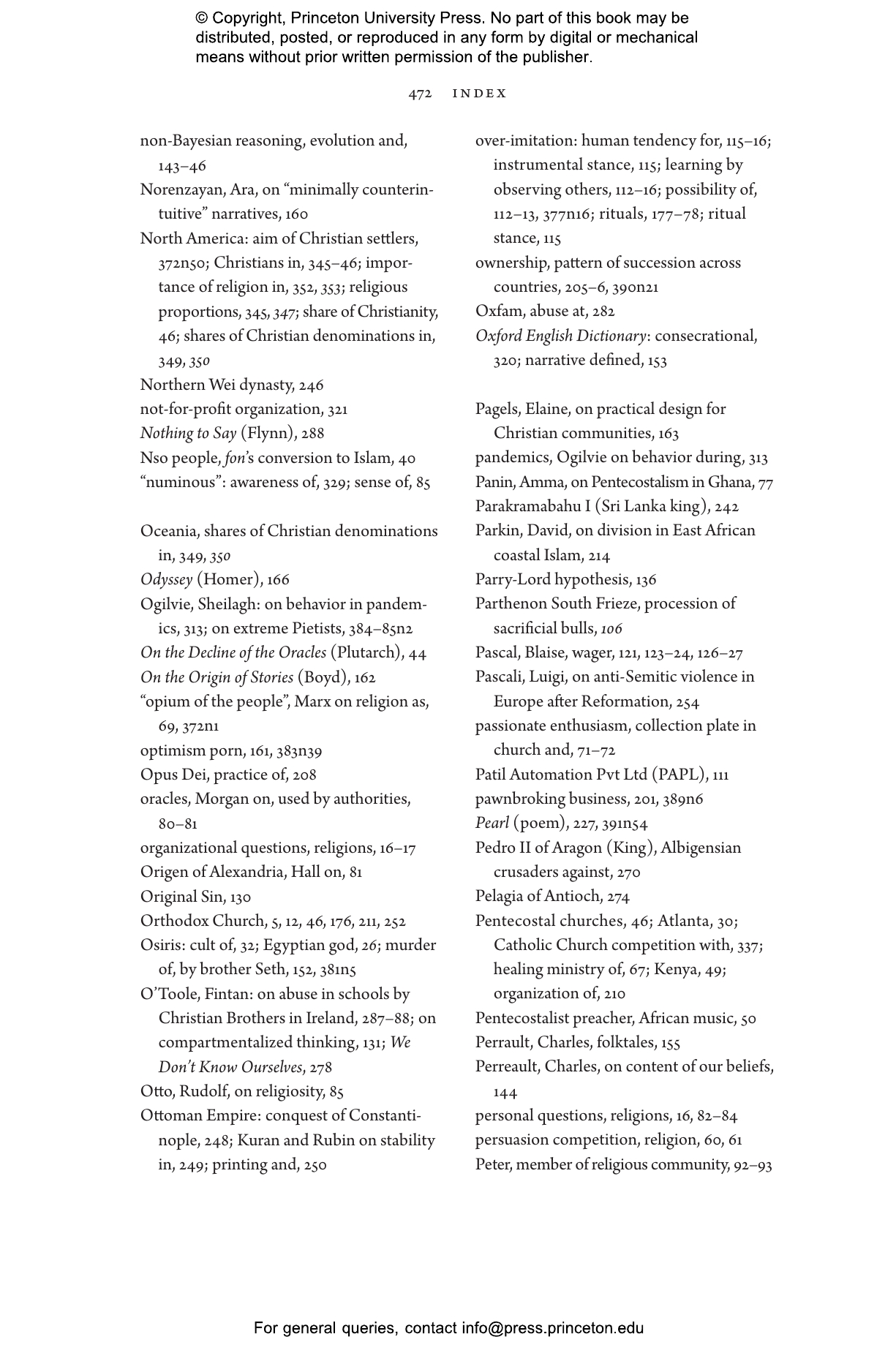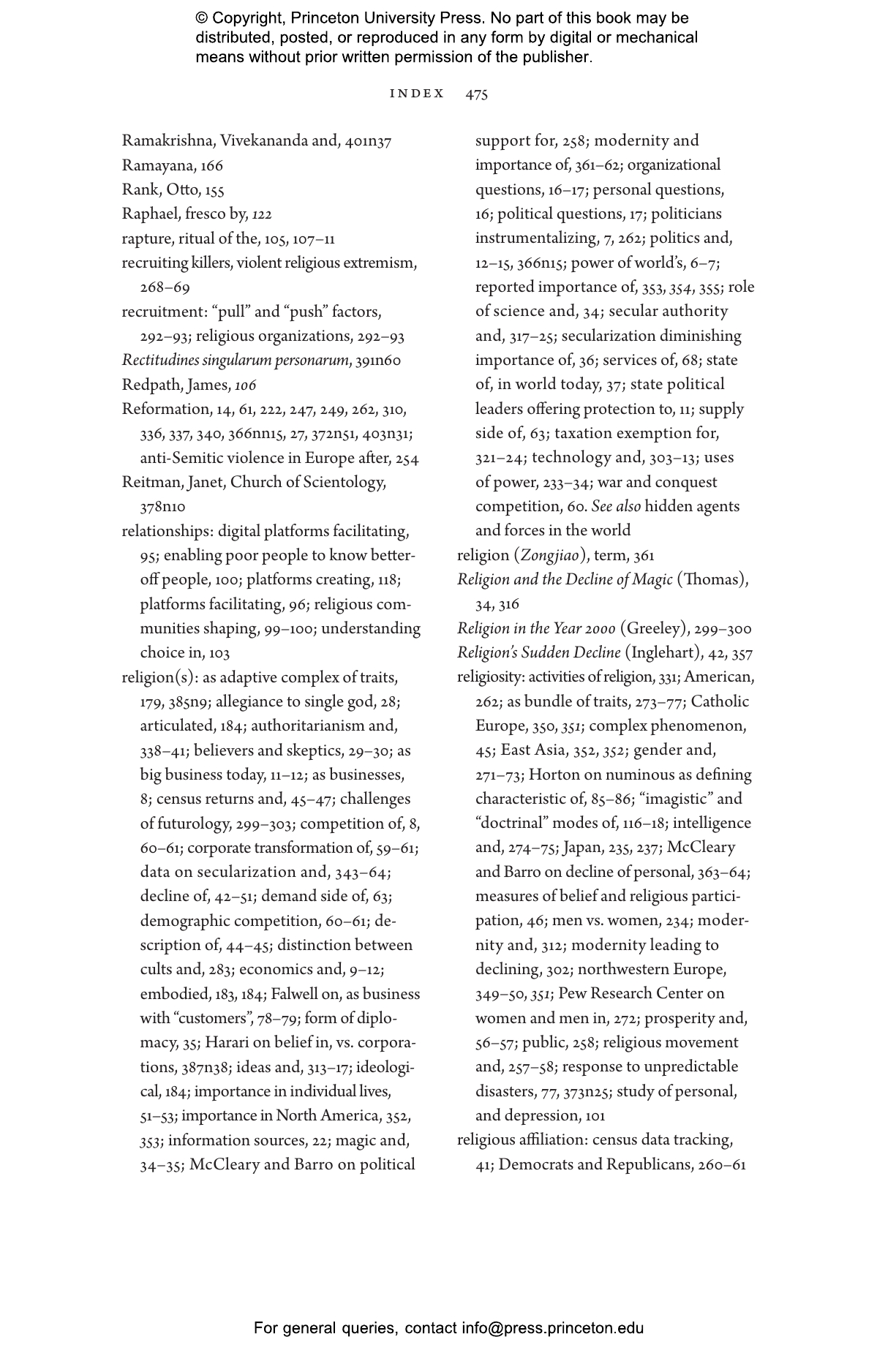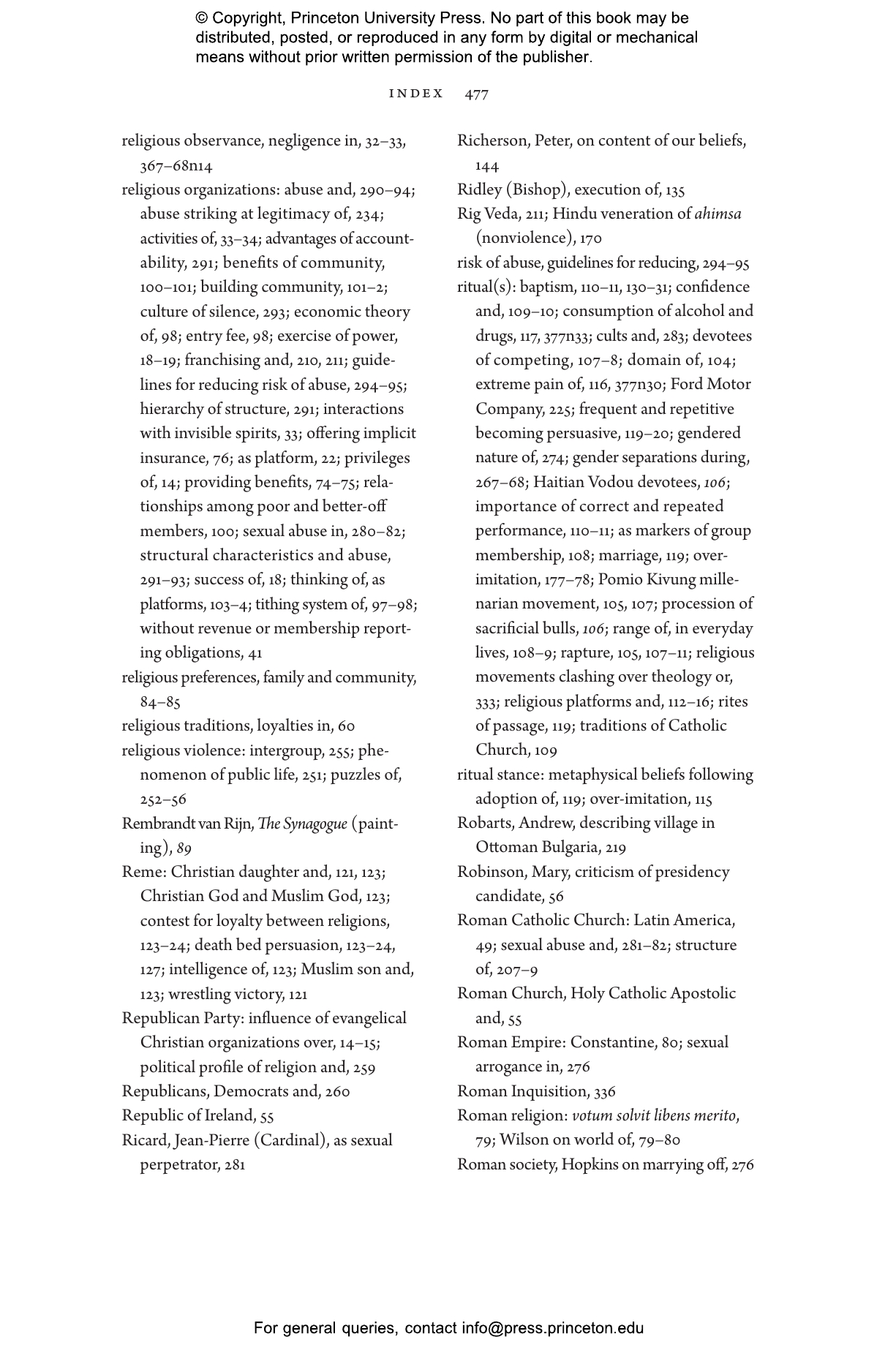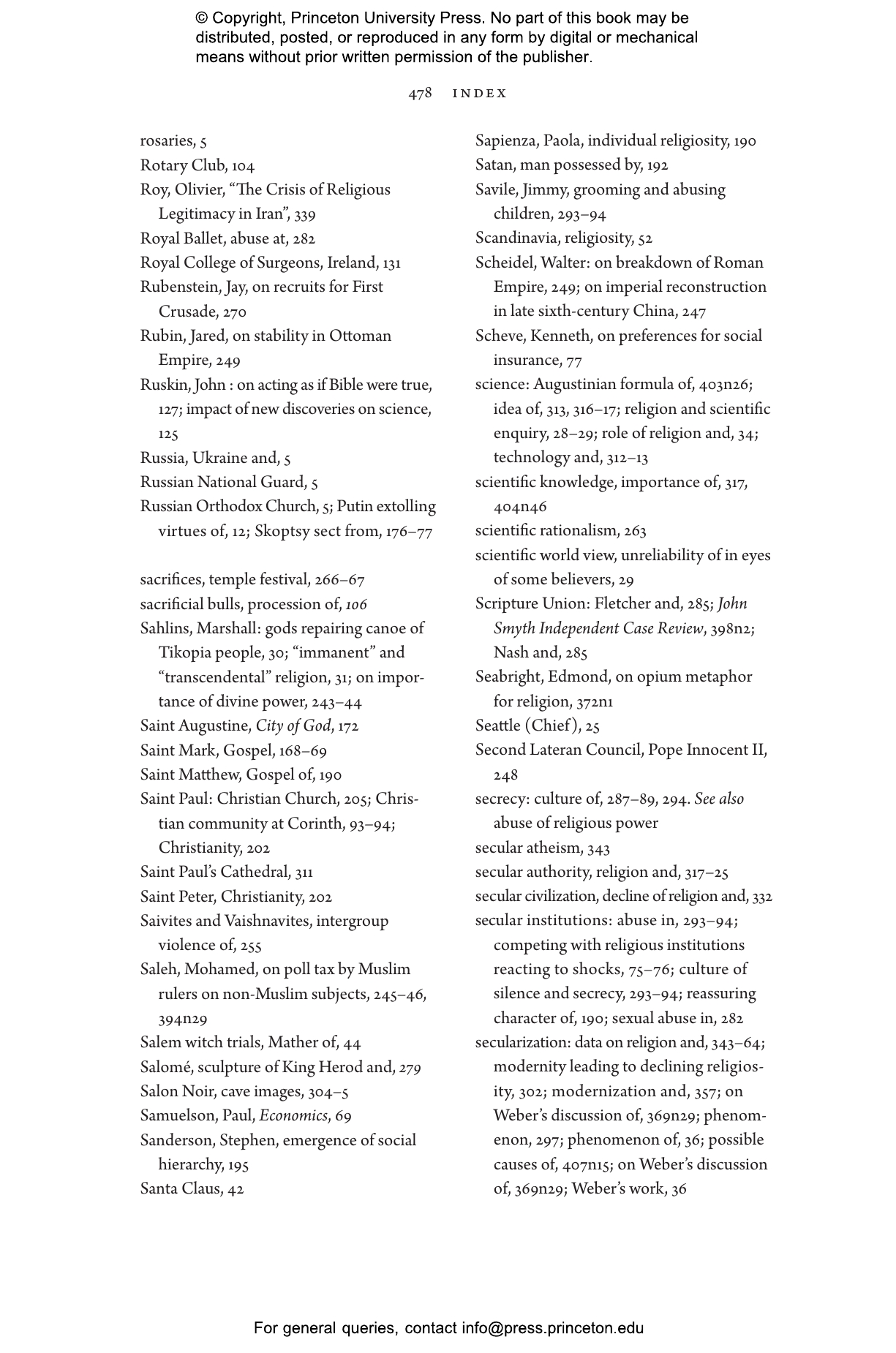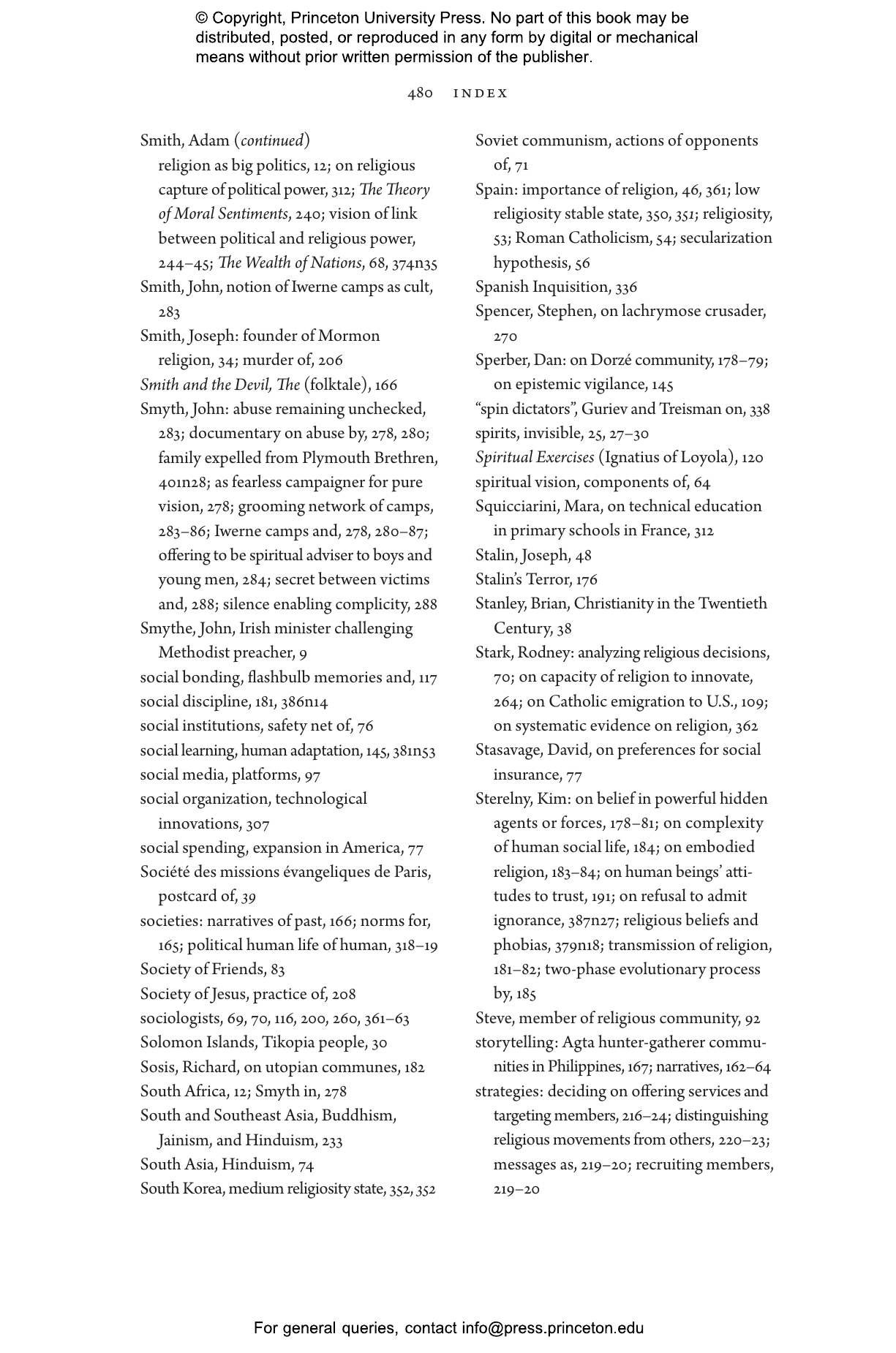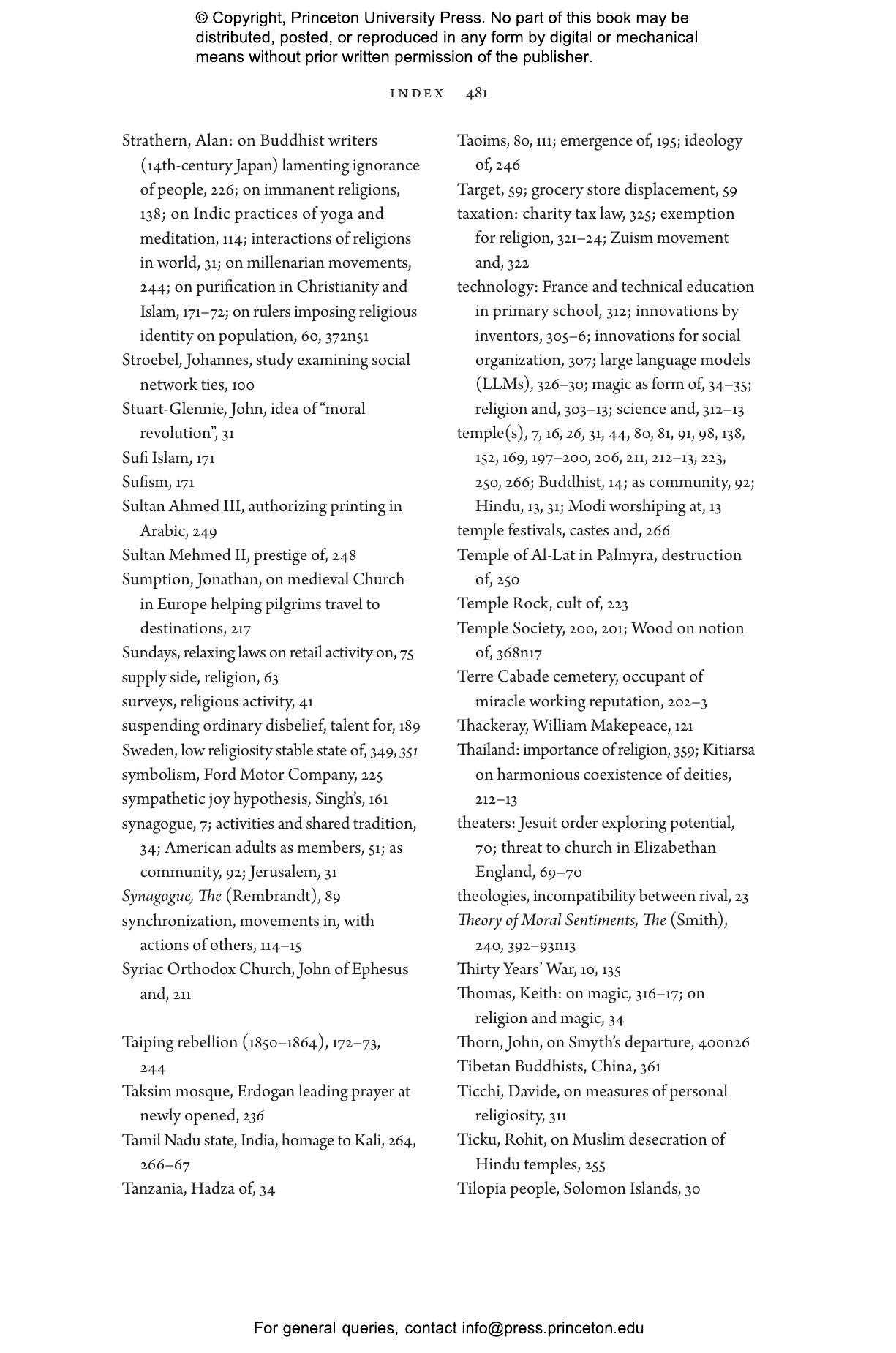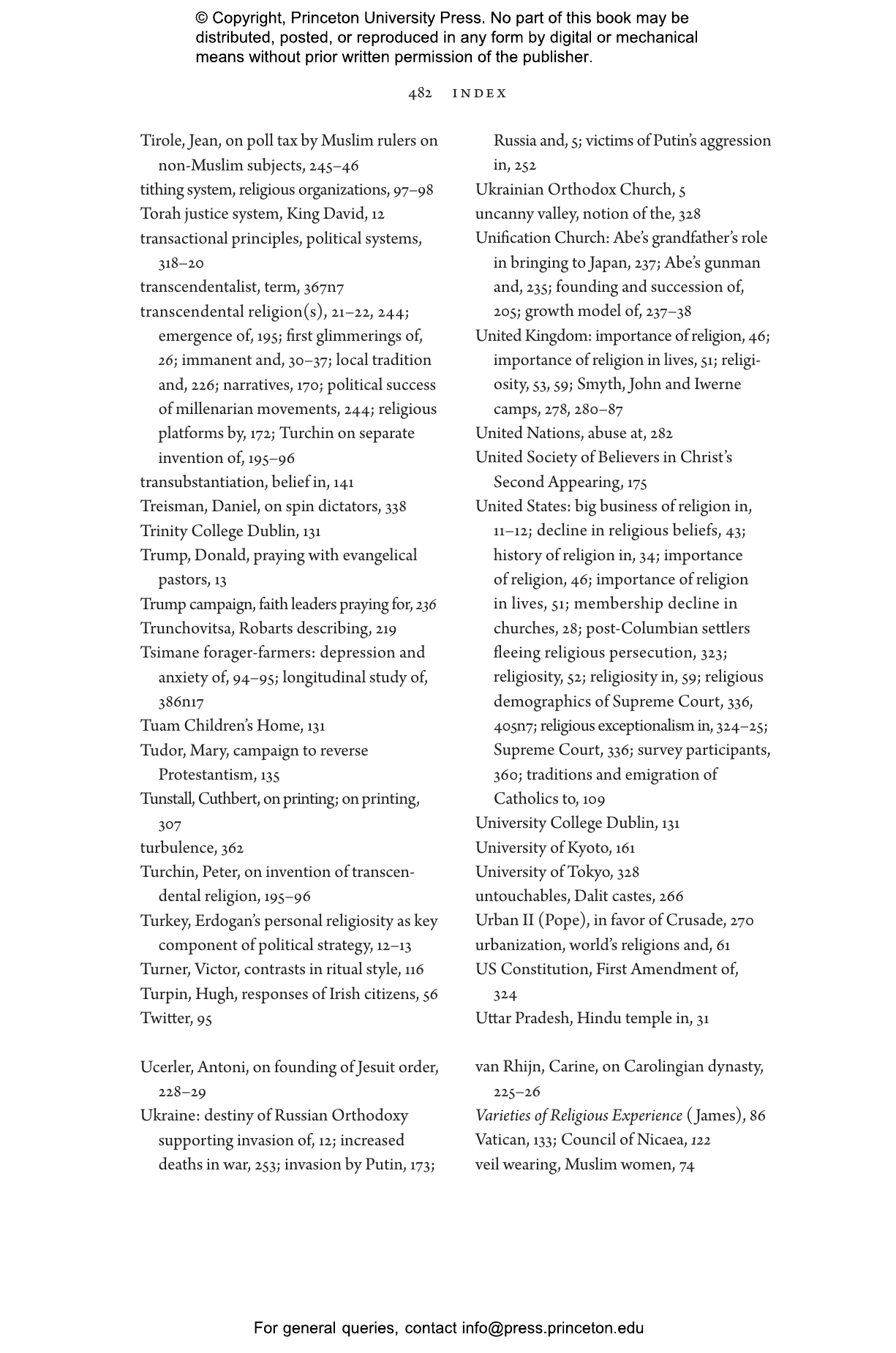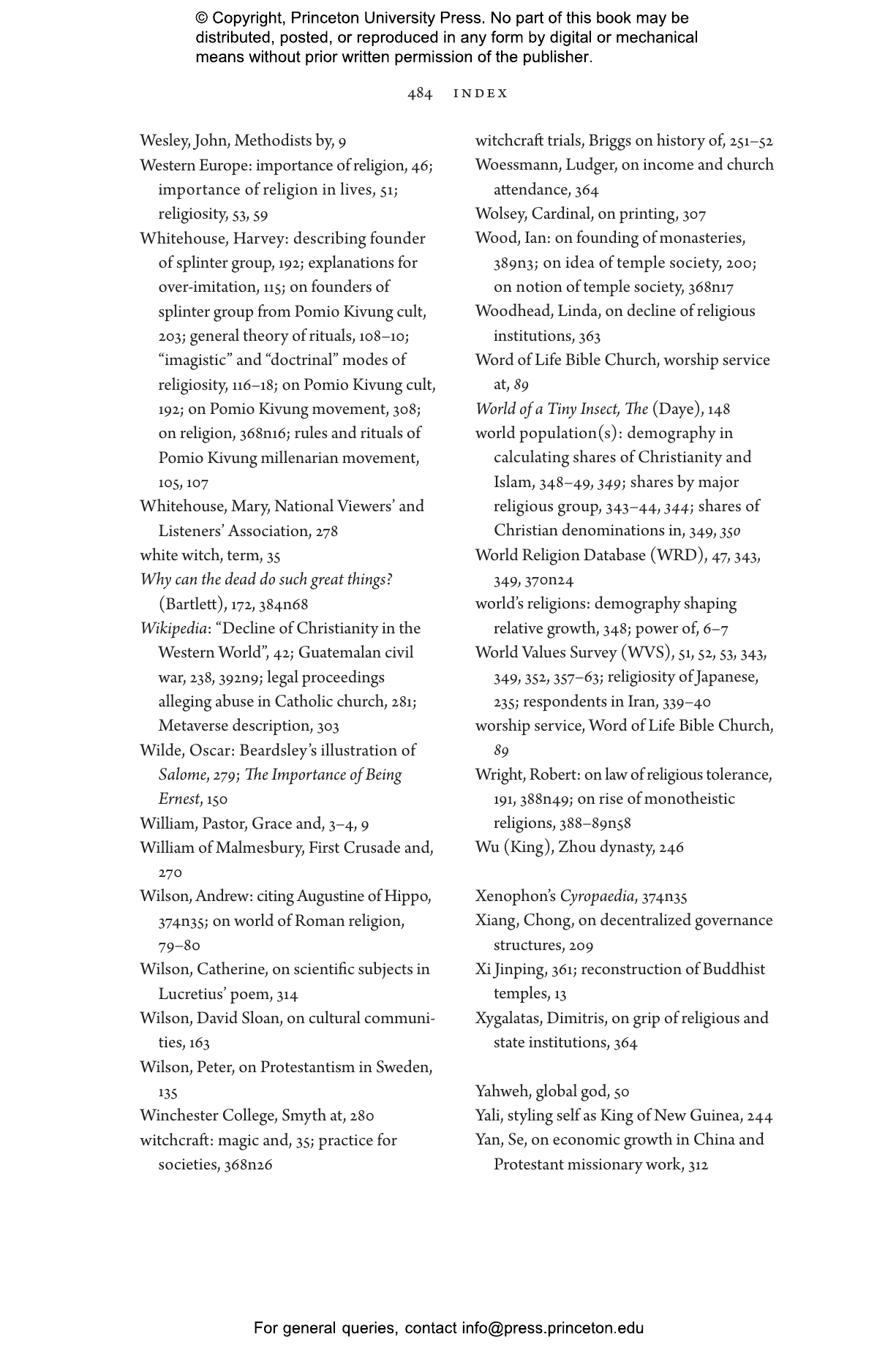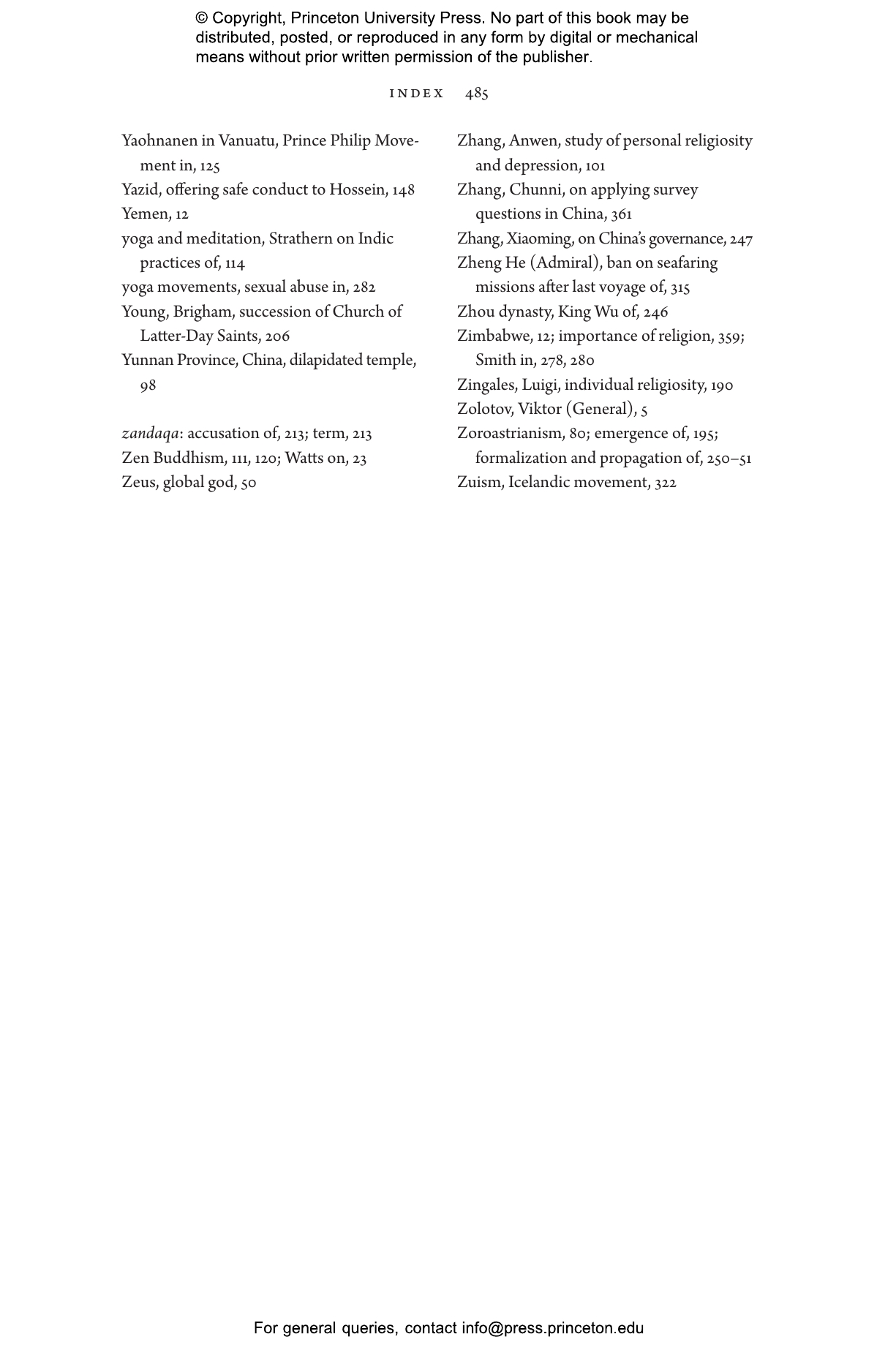Religion in the twenty-first century is alive and well across the world, despite its apparent decline in North America and parts of Europe. Vigorous competition between and within religious movements has led to their accumulating great power and wealth. Religions in many traditions have honed their competitive strategies over thousands of years. Today, they are big business; like businesses, they must recruit, raise funds, disburse budgets, manage facilities, organize transportation, motivate employees, and get their message out. In The Divine Economy, economist Paul Seabright argues that religious movements are a special kind of business: they are platforms, bringing together communities of members who seek many different things from one another—spiritual fulfilment, friendship and marriage networks, even business opportunities. Their function as platforms, he contends, is what has allowed religions to consolidate and wield power.
This power can be used for good, especially when religious movements provide their members with insurance against the shocks of modern life, and a sense of worth in their communities. It can also be used for harm: political leaders often instrumentalize religious movements for authoritarian ends, and religious leaders can exploit the trust of members to inflict sexual, emotional, financial or physical abuse, or to provoke violence against outsiders. Writing in a nonpartisan spirit, Seabright uses insights from economics to show how religion and secular society can work together in a world where some people feel no need for religion, but many continue to respond with enthusiasm to its call.
Awards and Recognition
- Longlisted for the Financial Times and Schroders Business Book of the Year Award
- Winner of the Bronze Medal in Business Commentary, Axiom Business Book Awards
"Seabright has produced an engaging and insightful book, which I found myself pondering long after I had read the last page."—Jane Shaw, Financial Times
"Enlightening."—The Economist
"[A]n insightful and enjoyable read. [Seabright’s] platform view makes for a fresh look at religious organizations. I suspect that all scholars of religion economics will find the book equally insightful. For those less familiar with the economics of religion, the book is also an easy-to-read launchpad to the field. . . it will enthuse broad-minded social scientists as well. Finally, since the book addresses ‘big questions’ in an accessible and engaging style, it will also be of interest to nonspecialists."—Sascha O. Becker, Journal of Economic Literature
"Seabright has a great talent for addressing original questions. In this book, he reverses the familiar trope that religion is the antithesis of mere economics. On the contrary, he argues, religions are competing businesses: they attract people by providing services they value, from the mundane — a community in which to find a compatible mate — to the sublime — a sense of life’s meaning."—Martin Wolf, Financial Times
"Combining tough-mindedness and cultural sensitivity, Paul Seabright may help to bring religion nearer to the mainstream of international political debate."—Jonathan Benthall, Times Literary Supplement
"Refreshing."—Helen Nicholls, National Secular Society
"In The Divine Economy: How Religions Compete for Wealth, Power, and People, Paul Seabright offers a novel economic analysis of religions. He describes them as the original platform organisations, rallying groups of users in mutually beneficial relationships just as Instagram or X do today, and points out how religious and secular groups can work together."—Financial Times
“In this compelling and highly original book, Paul Seabright combines sympathetic vignettes of believers and practices with shrewd analysis to generate insights that illuminate both a key area of contemporary life and its historical roots.”—Robin Briggs, author of Witches and Neighbours: The Social and Cultural Context of European Witchcraft
“This brilliant, challenging, and remarkably wide-ranging book is daringly built around a seemingly simple proposition: all religions are platforms, comparable to the digital platforms that have transformed our world. With inexhaustible curiosity, subtle intelligence, and a deeply sympathetic understanding of human needs and longings, Paul Seabright has illuminated not only the functioning of religions throughout world history but also their ability to survive and flourish in the contemporary world.”—Stephen Greenblatt, author of The Swerve: How the World Became Modern
“The coming of commercial society and its dissolving status-society structures provoked countermovements—nation and religion. Paul Seabright’s brilliant book begins the exploration of how commercial society can be strengthened by religion, and religion strengthened by commercial society.”—J. Bradford DeLong, author of Slouching Towards Utopia: An Economic History of the Twentieth Century
“Erudite, expansive, and elegant, this is a wonderful book. With characteristic eloquence and charm, Seabright demonstrates the continued resilience of religion in debates about economics, politics, and the global challenges facing our world today.”—Sriya Iyer, author of The Economics of Religion in India
“The gods may be beyond all understanding, says Paul Seabright in this marvelous book, but the organizations that speak for them are not. Looking into everything from artificial intelligence to the past, present, and future of popes, he shows how religions, like any other businesses, must compete for consumers and build brand loyalty or lose their market share. Religion will never look quite the same after you have read this book.”—Ian Morris, author of Geography Is Destiny: Britain and the World, A 10,000-Year History
“If religion or economics has always baffled you, this thoughtful and witty book is the key to unlock the mystery. The best of both disciplines for the most skeptical reader.”—Sheilagh Ogilvie, author of The European Guilds: An Economic Analysis
“Have you ever wondered why so many people are religious? Paul Seabright’s beautifully written book draws on economics, history, anthropology, and evolution to explain how religious movements attract power, resources, and followers. Who would not want to join that club? Challenging skeptics who have wondered how people could be so illogical as to follow a religion, Seabright explains why it is not illogical at all.”—Ruth Mace, University College London
“Business economics meets religion—the result is original, illuminating, sometimes surprising, and always enjoyable to read.”—John Kay, coauthor of Radical Uncertainty: Decision-Making for an Unknowable Future



